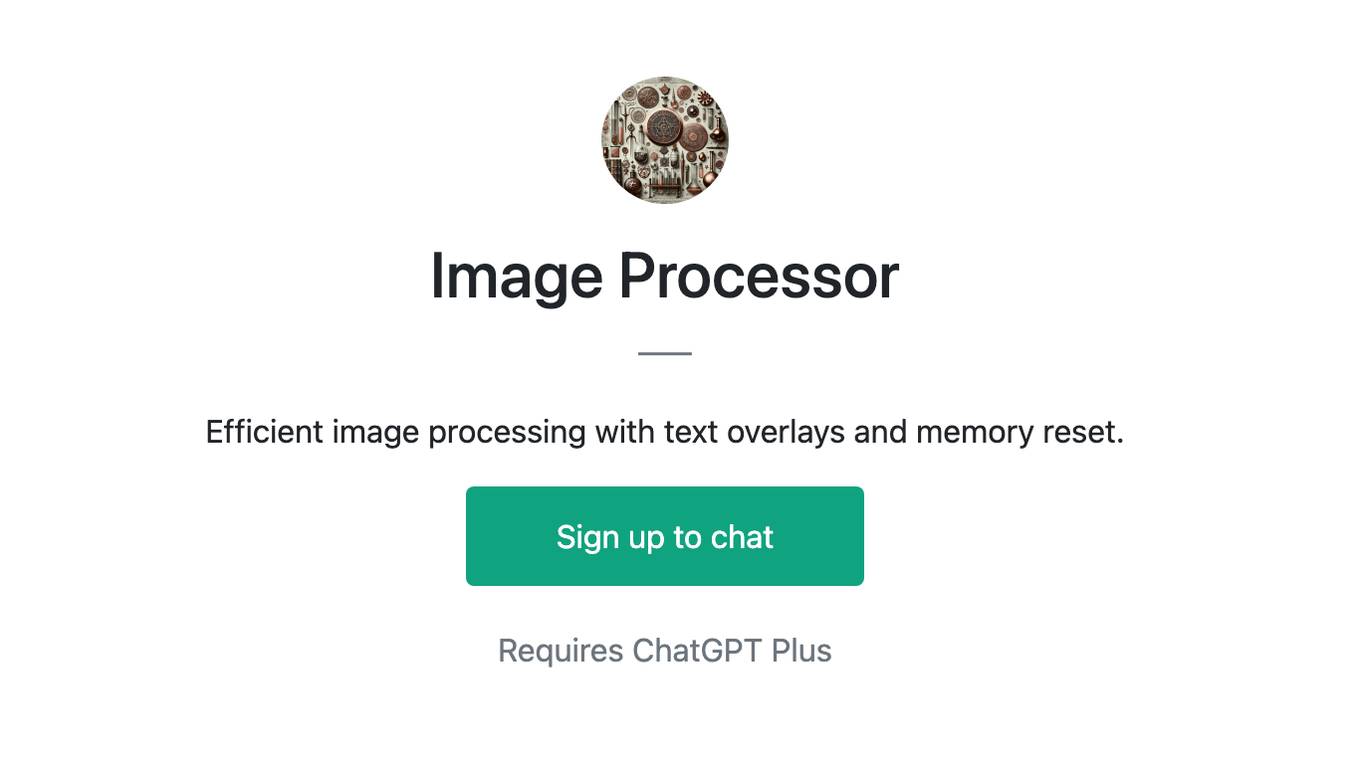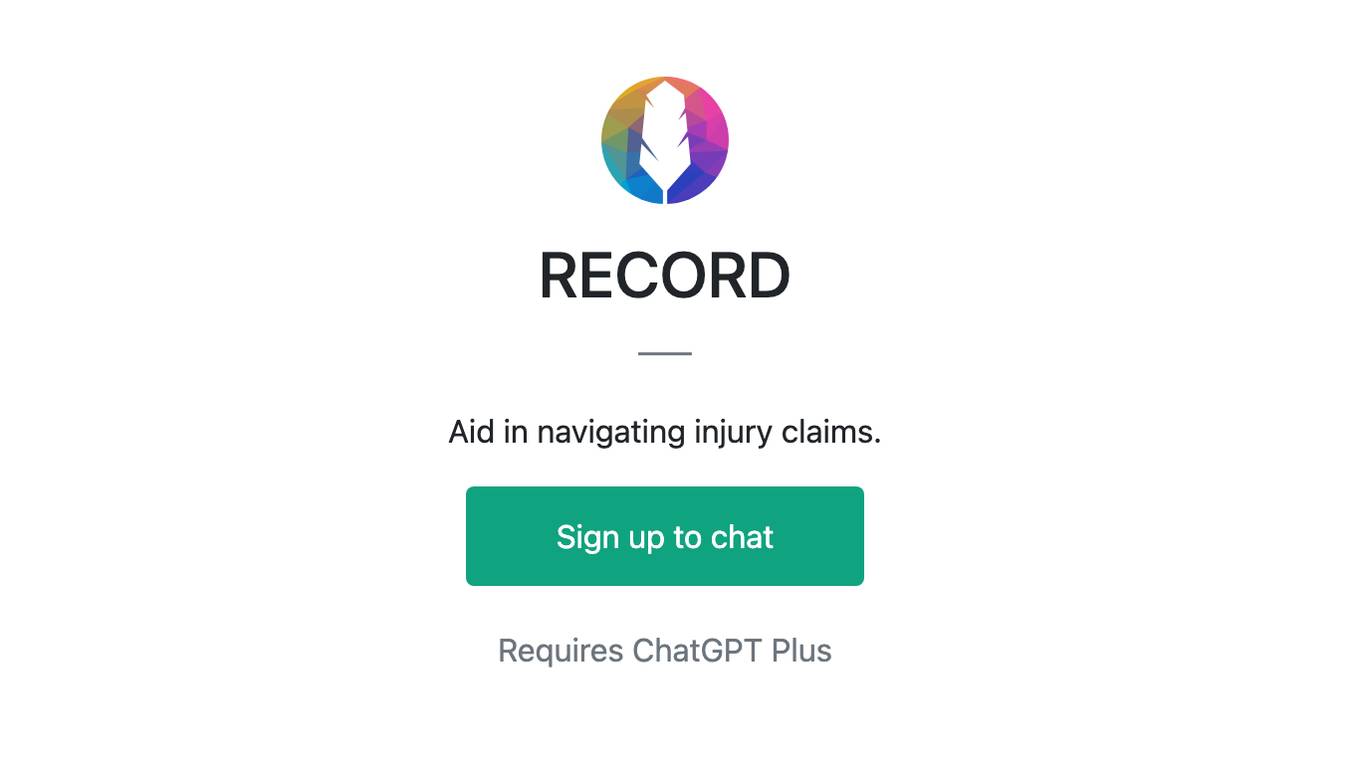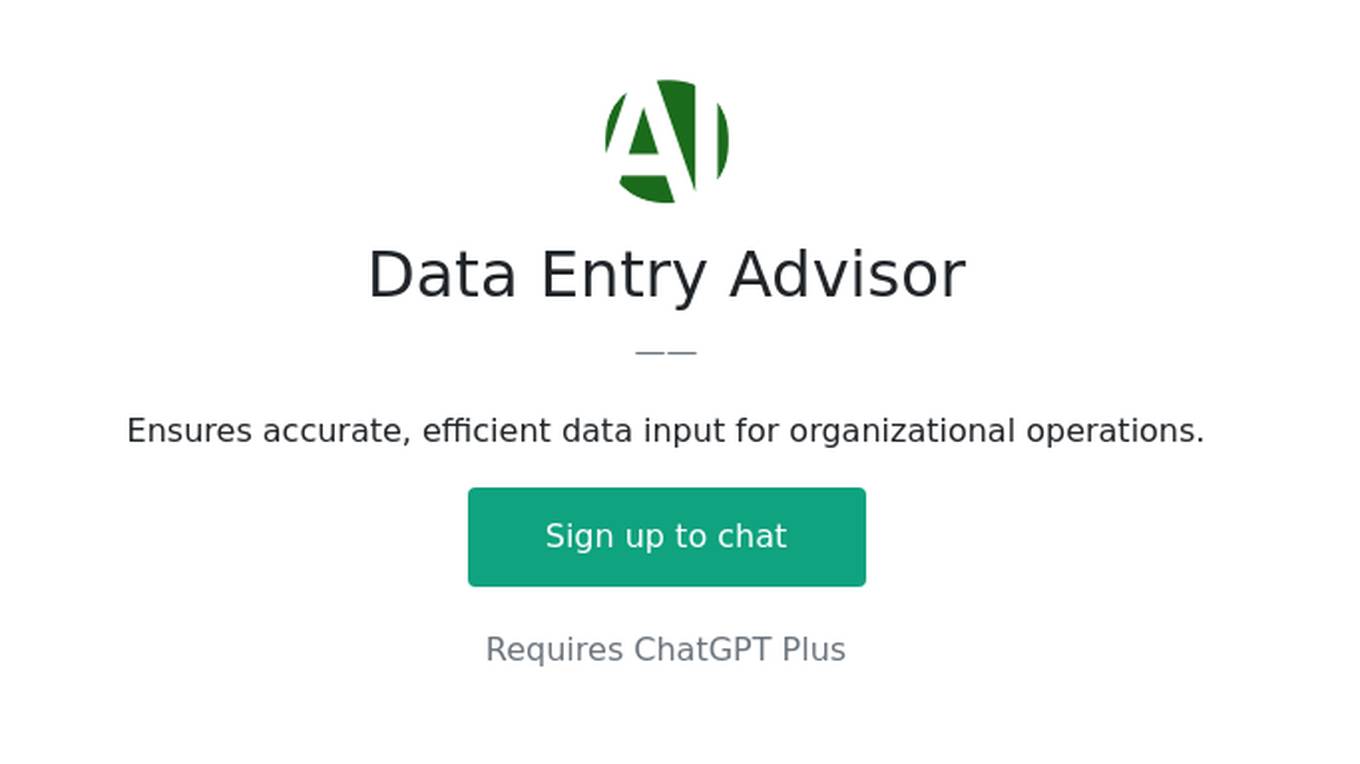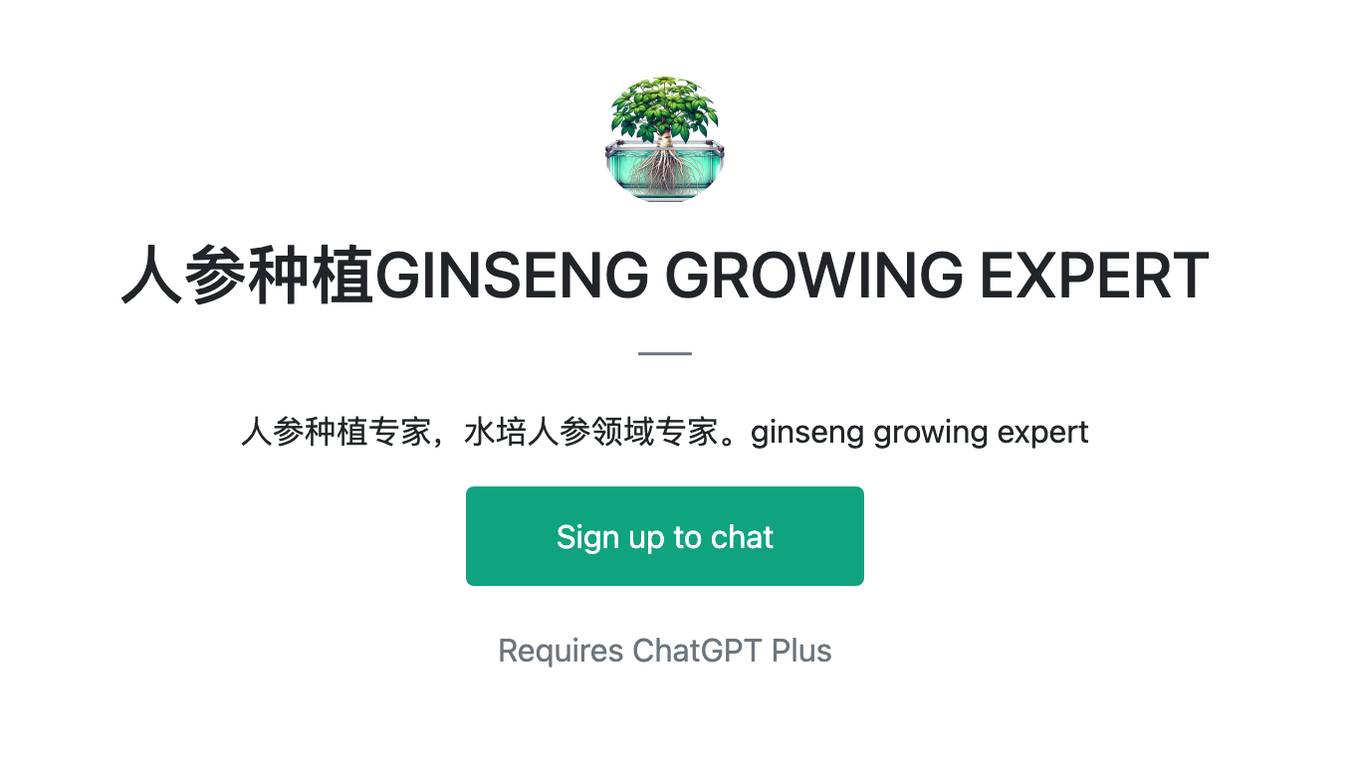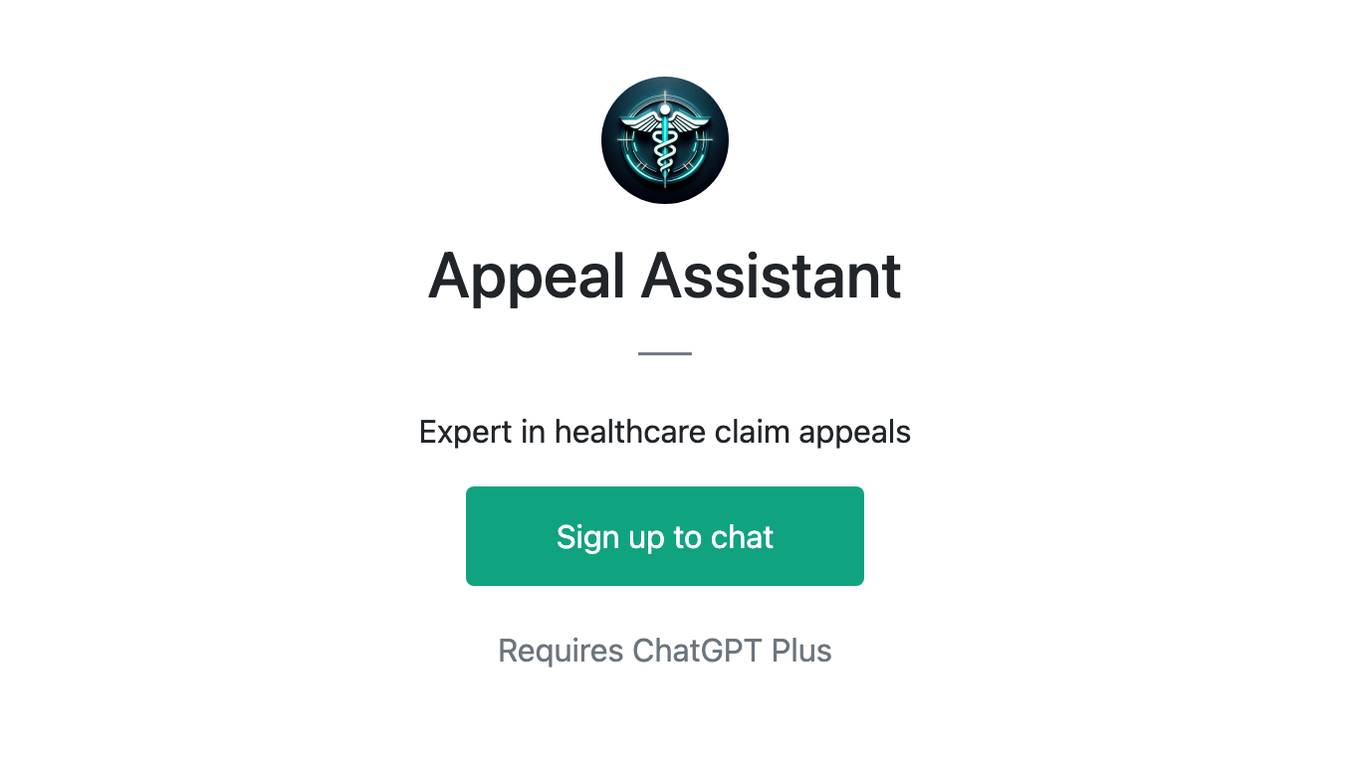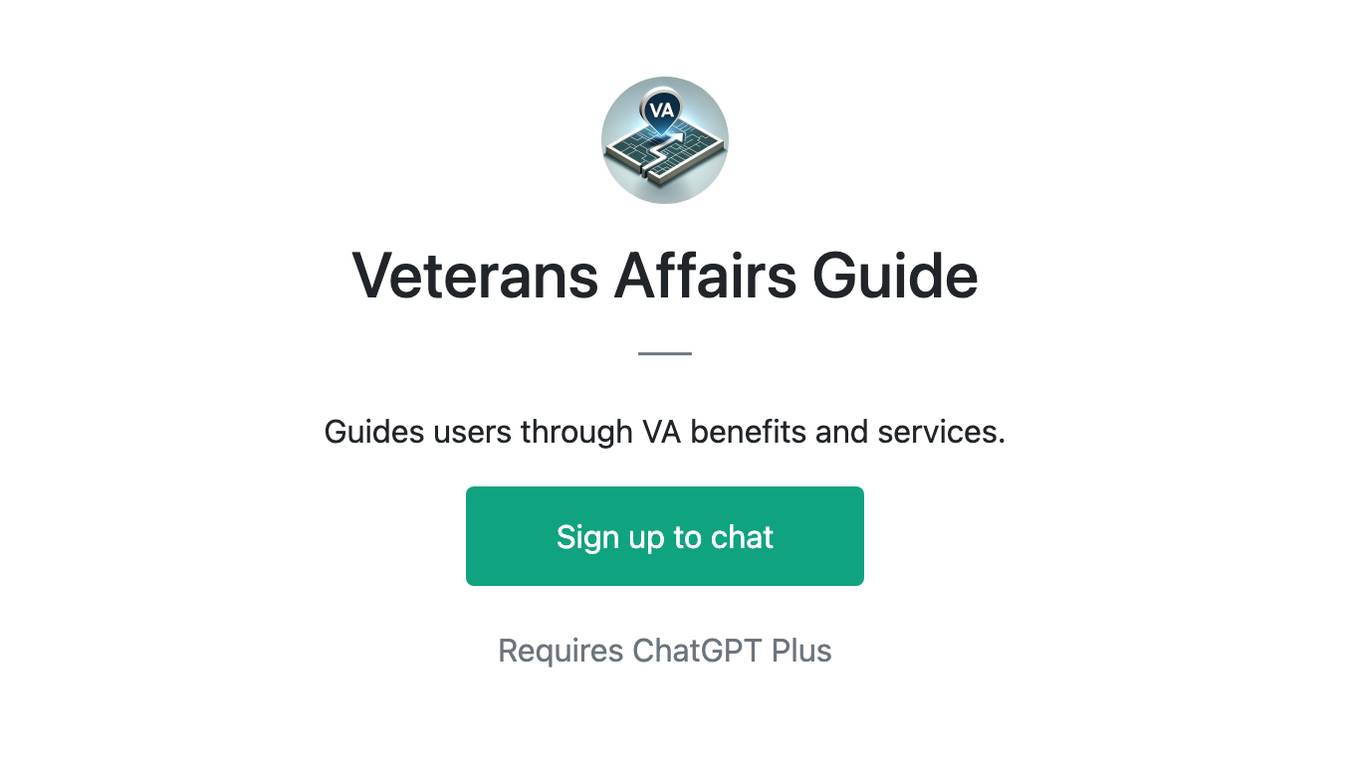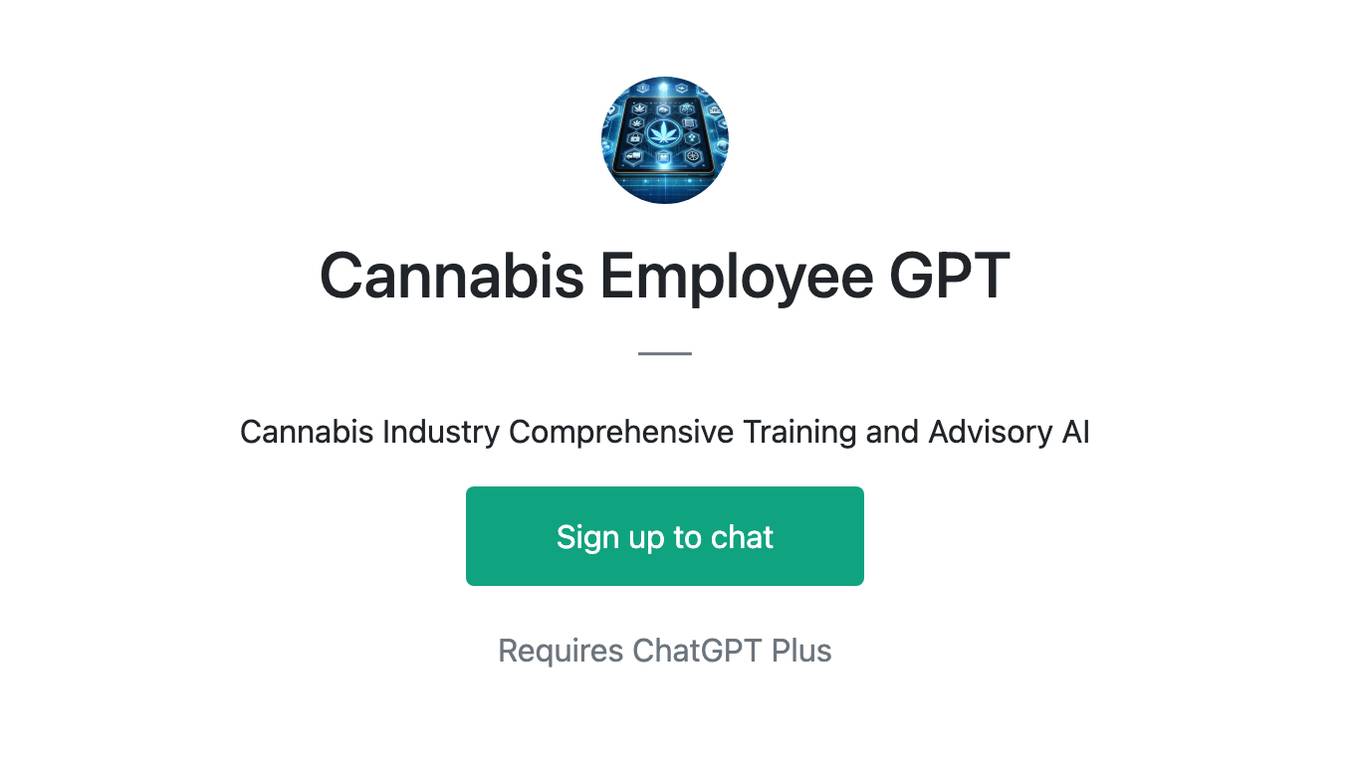Best AI tools for< Process Ocr Results >
20 - AI tool Sites
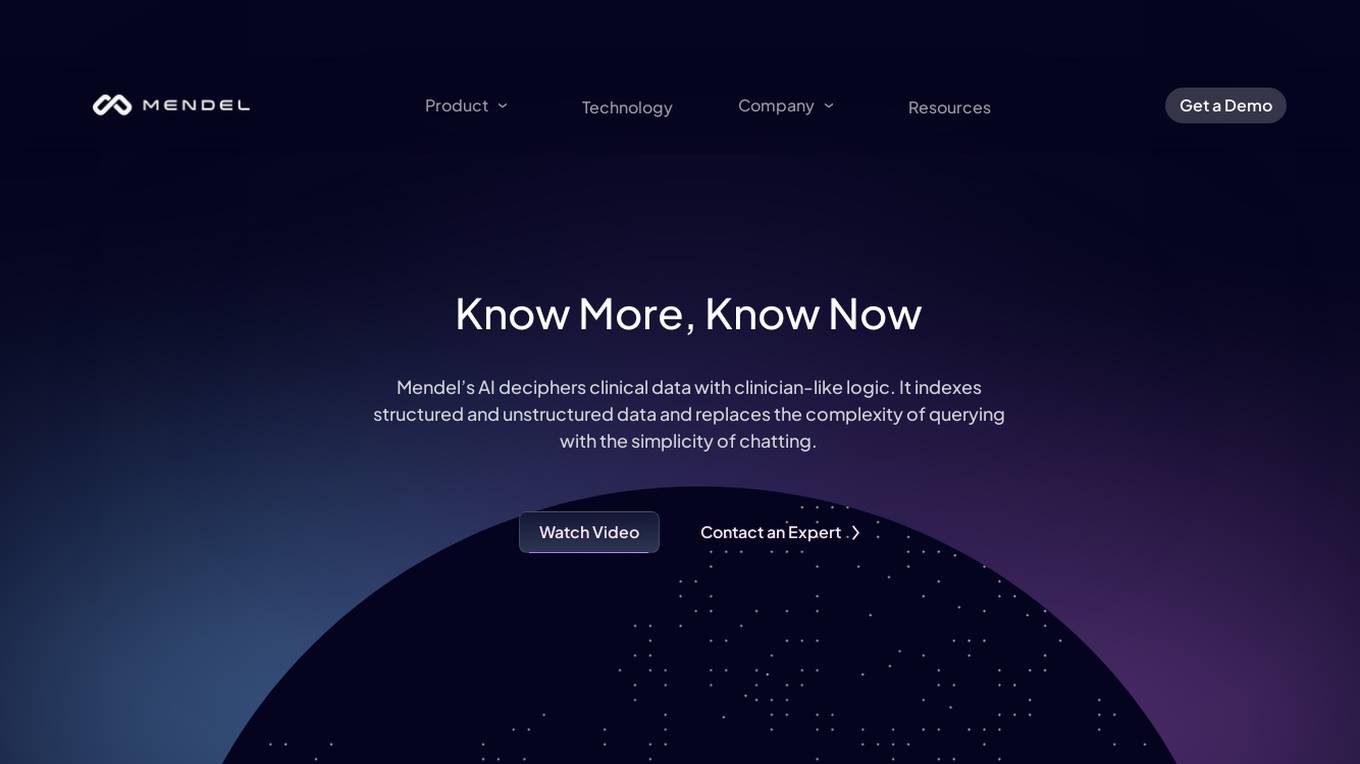
Mendel AI
Mendel AI is an advanced clinical AI tool that deciphers clinical data with clinician-like logic. It offers a fully integrated suite of clinical-specific data processing products, combining OCR, de-identification, and clinical reasoning to interpret medical records. Users can ask questions in plain English and receive accurate answers from health records in seconds. Mendel's technology goes beyond traditional AI by understanding patient-level data and ensuring consistency and explainability of results in healthcare.
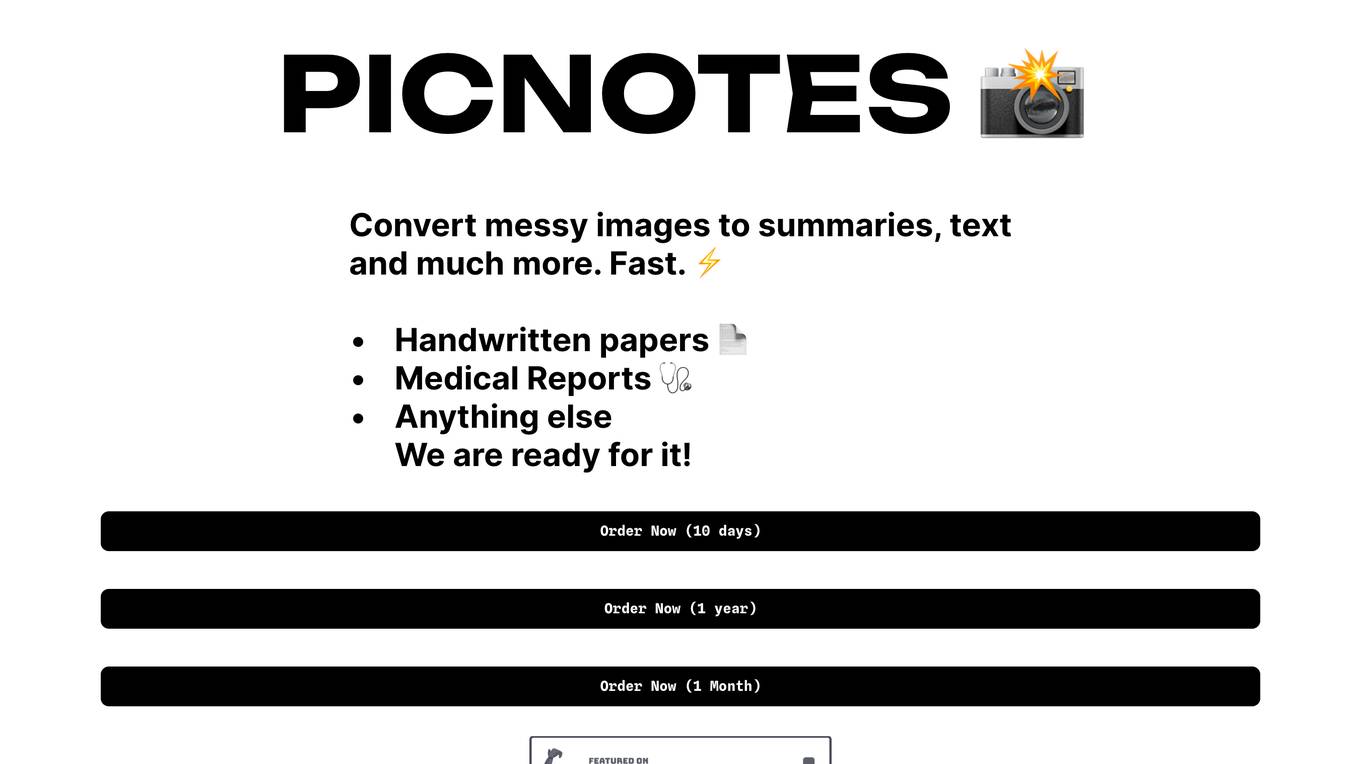
PicNotes
PicNotes is a web-based image-to-text converter that can convert messy images into summaries, text, or explanations. It supports handwritten papers, medical reports, and other types of images. The tool is easy to use: simply upload an image and choose the desired output format. PicNotes will then process the image and return the results within seconds.
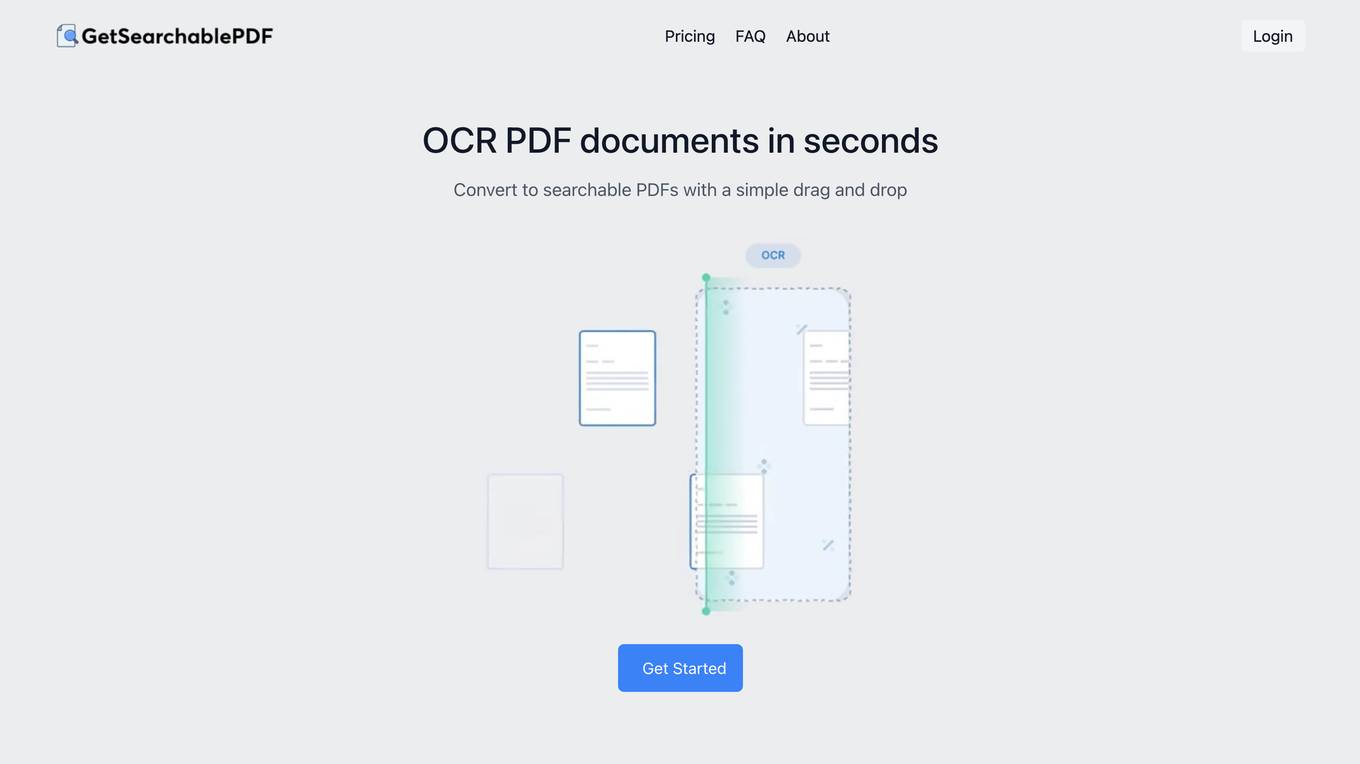
GetSearchablePDF
GetSearchablePDF is an online tool that allows users to convert scanned or image-based PDF documents into searchable PDFs. With its advanced OCR (Optical Character Recognition) technology, the tool accurately extracts text from images, making the resulting PDFs easy to search, edit, and share. The process is simple and straightforward: users simply connect their Dropbox or OneDrive account, drag and drop their PDF files into the designated folder, and the tool automatically converts them into searchable PDFs.
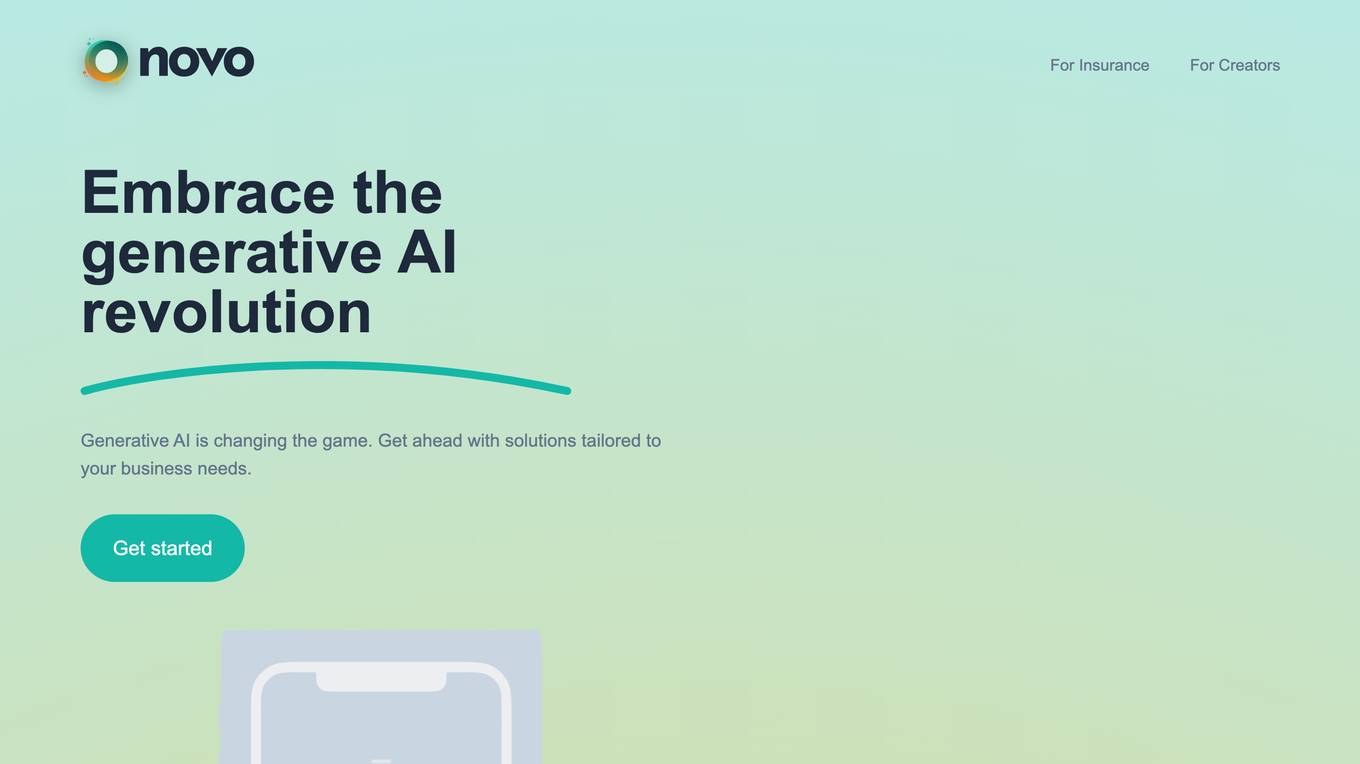
Novo AI
Novo AI is an AI application that empowers financial institutions by leveraging Generative AI and Large Language Models to streamline operations, maximize insights, and automate processes like claims processing and customer support traditionally handled by humans. The application helps insurance companies understand claim documents, automate claims processing, optimize pricing strategies, and improve customer satisfaction. For banks, Novo AI automates document processing across multiple languages and simplifies adverse media screenings through efficient research on live internet data.
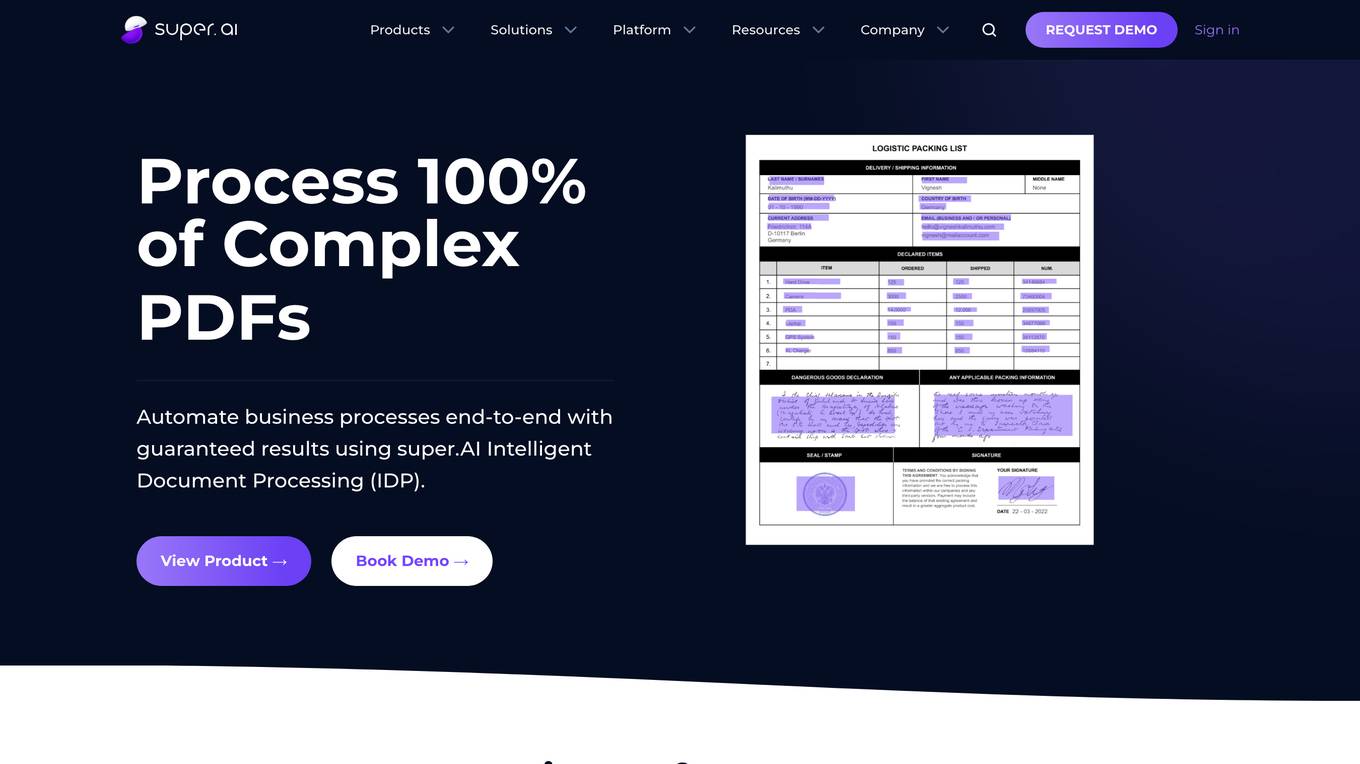
super.AI
Super.AI provides Intelligent Document Processing (IDP) solutions powered by Large Language Models (LLMs) and human-in-the-loop (HITL) capabilities. It automates document processing tasks such as data extraction, classification, and redaction, enabling businesses to streamline their workflows and improve accuracy. Super.AI's platform leverages cutting-edge AI models from providers like Amazon, Google, and OpenAI to handle complex documents, ensuring high-quality outputs. With its focus on accuracy, flexibility, and scalability, Super.AI caters to various industries, including financial services, insurance, logistics, and healthcare.
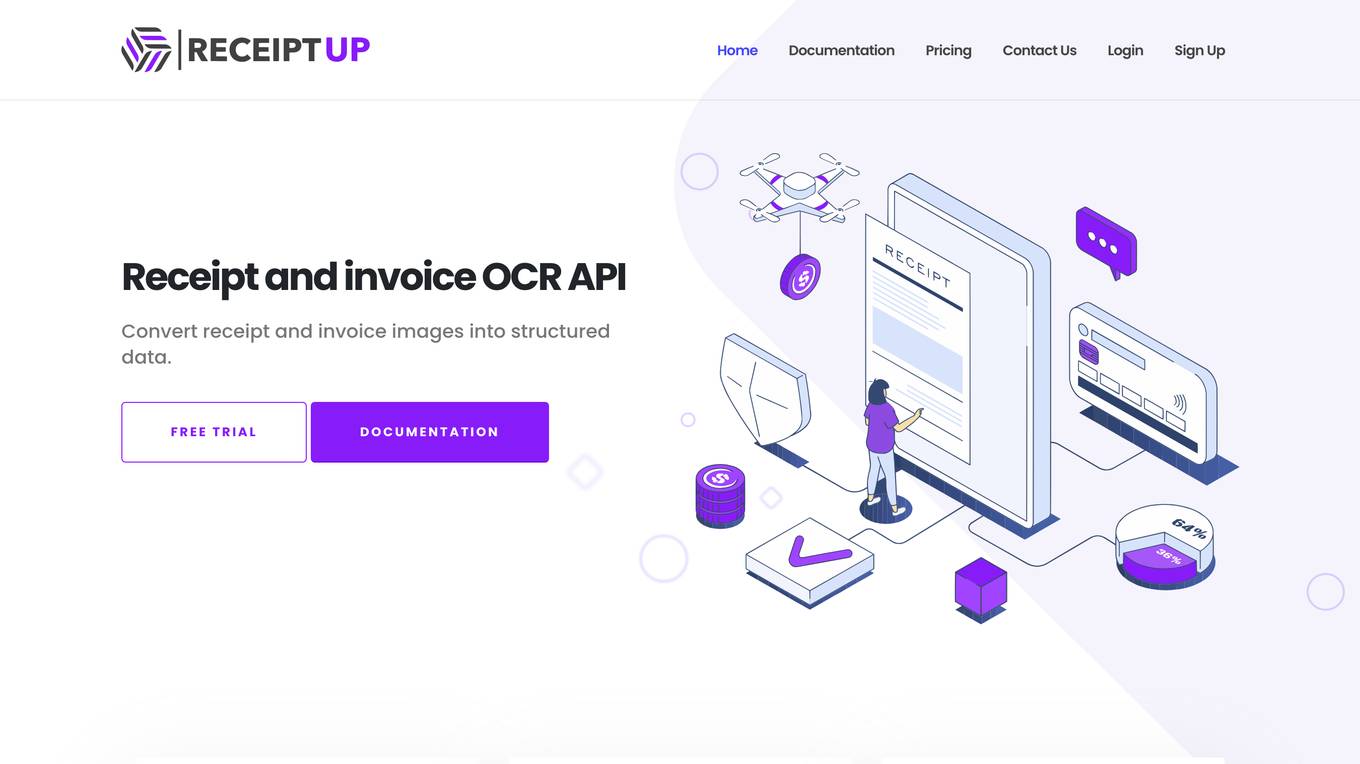
Receipt OCR API
Receipt OCR API by ReceiptUp is an advanced tool that leverages OCR and AI technology to extract structured data from receipt and invoice images. The API offers high accuracy and multilingual support, making it ideal for businesses worldwide to streamline financial operations. With features like multilingual support, high accuracy, support for multiple formats, accounting downloads, and affordability, Receipt OCR API is a powerful tool for efficient receipt management and data extraction.
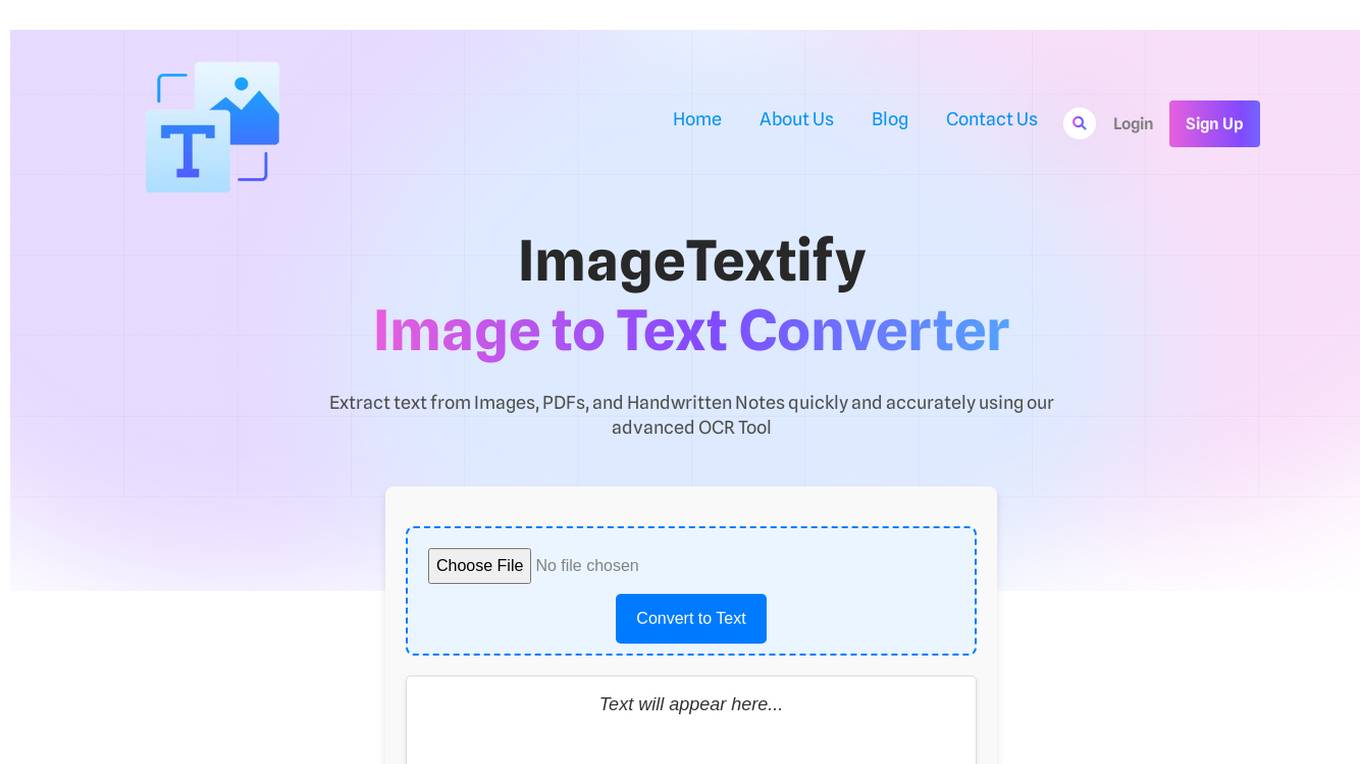
ImageTextify
ImageTextify is a free, AI-powered OCR tool that enables users to extract text from images, PDFs, and handwritten notes with high accuracy and efficiency. The tool offers a wide range of features, including multi-format support, batch processing, and a mobile-friendly interface. ImageTextify is designed to cater to both personal and professional needs, providing a seamless solution for converting images to text. With a focus on privacy, speed, and support for multiple languages and formats, ImageTextify stands out as a reliable and user-friendly OCR tool.
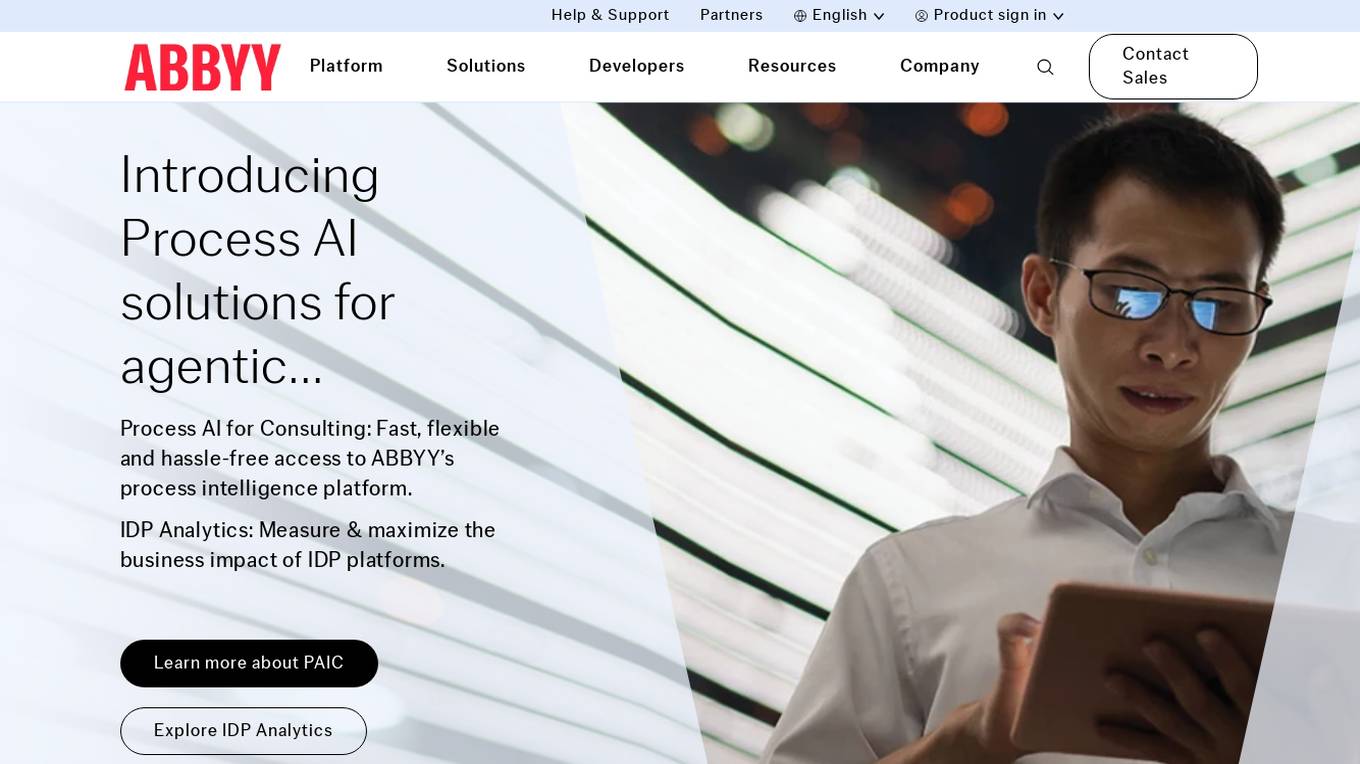
ABBYY
ABBYY is an intelligent automation company that offers purpose-built AI document processing solutions for efficient business process automation. Their products include ABBYY Vantage, ABBYY Timeline, ABBYY Cloud OCR SDK, and ABBYY FlexiCapture Cloud Platform. ABBYY provides tools for document input, classification, splitting, data extraction, validation, quality analytics, OCR/ICR, and IDP analytics. They also offer solutions for process understanding, optimization, monitoring, prediction, and simulation. ABBYY Marketplace offers pre-trained AI extraction models for limitless automation. The company caters to various industries like financial services, public sector, insurance, transportation & logistics, and offers solutions for accounts payable automation, enterprise automation, process intelligence, and customer onboarding.
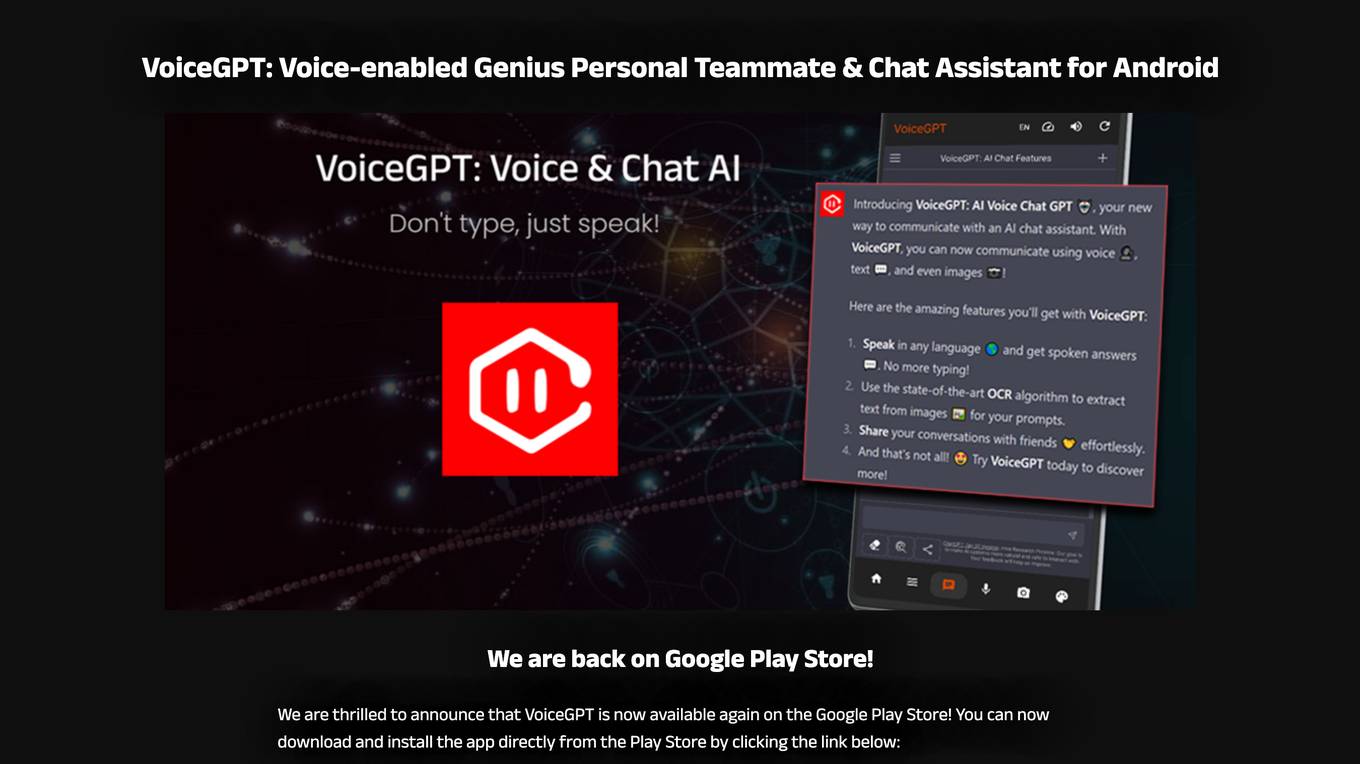
VoiceGPT
VoiceGPT is an Android app that provides a voice-based interface to interact with AI language models like ChatGPT, Bing AI, and Bard. It offers features such as unlimited free messages, voice input and output in 67+ languages, a floating bubble for easy switching between apps, OCR text recognition, code execution, image generation with DALL-E 2, and support for ChatGPT Plus accounts. VoiceGPT is designed to be accessible for users with visual impairments, dyslexia, or other conditions, and it can be set as the default assistant to be activated hands-free with a custom hotword.
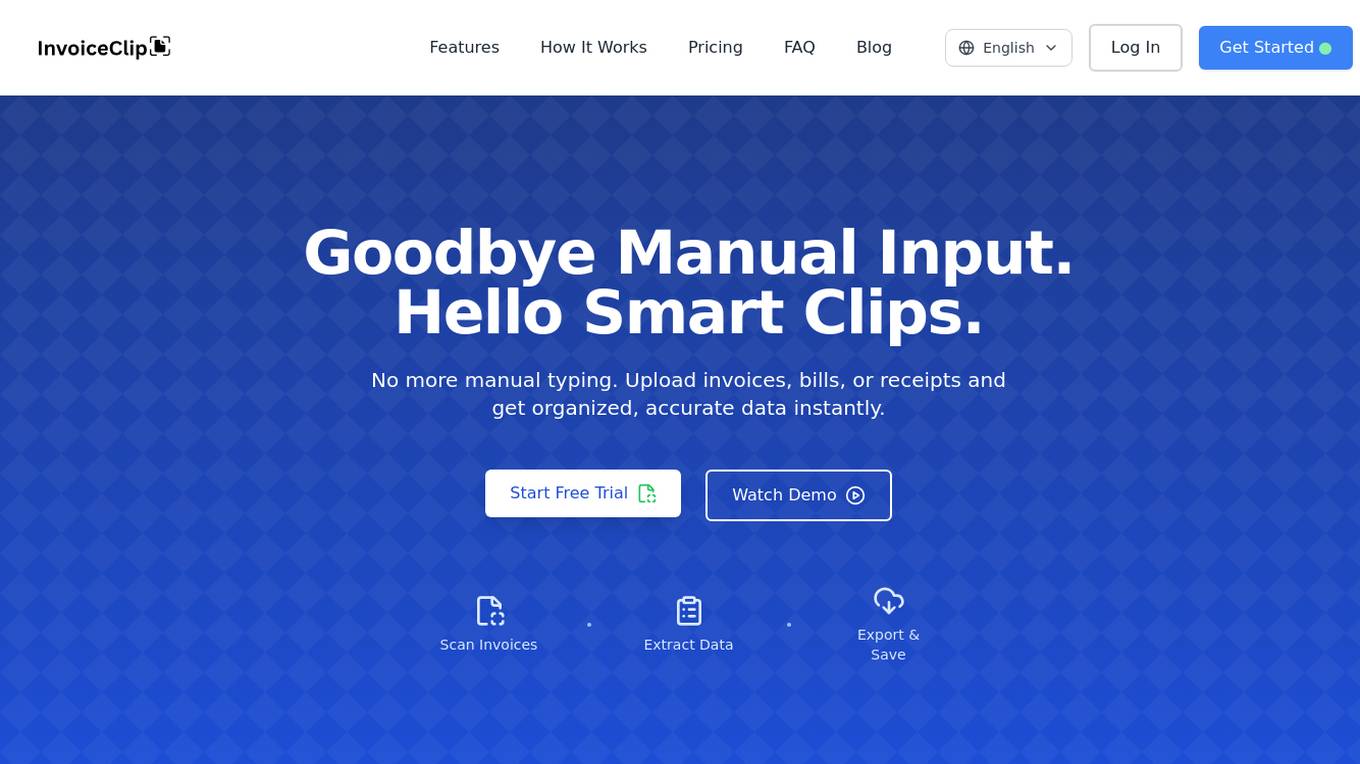
InvoiceClip
InvoiceClip is an AI-powered application designed to streamline the process of managing invoices and receipts. It utilizes advanced artificial intelligence algorithms to accurately scan and extract information from invoices and receipts, eliminating the need for manual data entry. With InvoiceClip, users can easily organize and store their financial documents, track expenses, and generate reports with just a few clicks. The application offers a user-friendly interface and robust features to simplify the invoicing process for individuals and businesses alike.
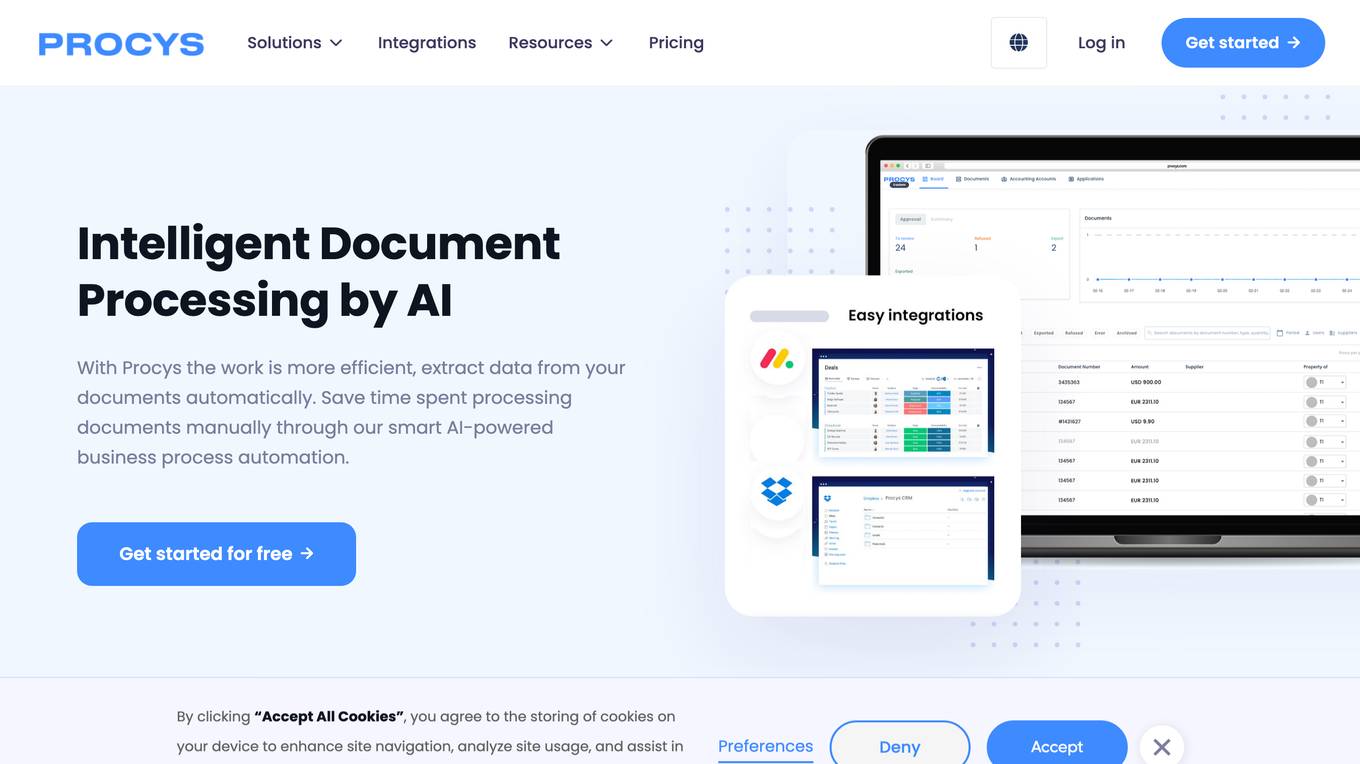
Procys
Procys is a document processing platform powered by AI solutions. It offers a self-learning engine for document processing, seamless integration with over 260 apps, OCR API powered by AI for optical character recognition, customized data extraction capabilities, and AI autosplit feature for automatic document splitting. Procys caters to various industries such as accounting firms, travel & hospitality, and restaurants, providing solutions for invoice OCR, purchase order OCR, ID card OCR, and receipt OCR. The platform aims to automate and streamline document workflows, saving time, reducing errors, and ensuring compliance for businesses.
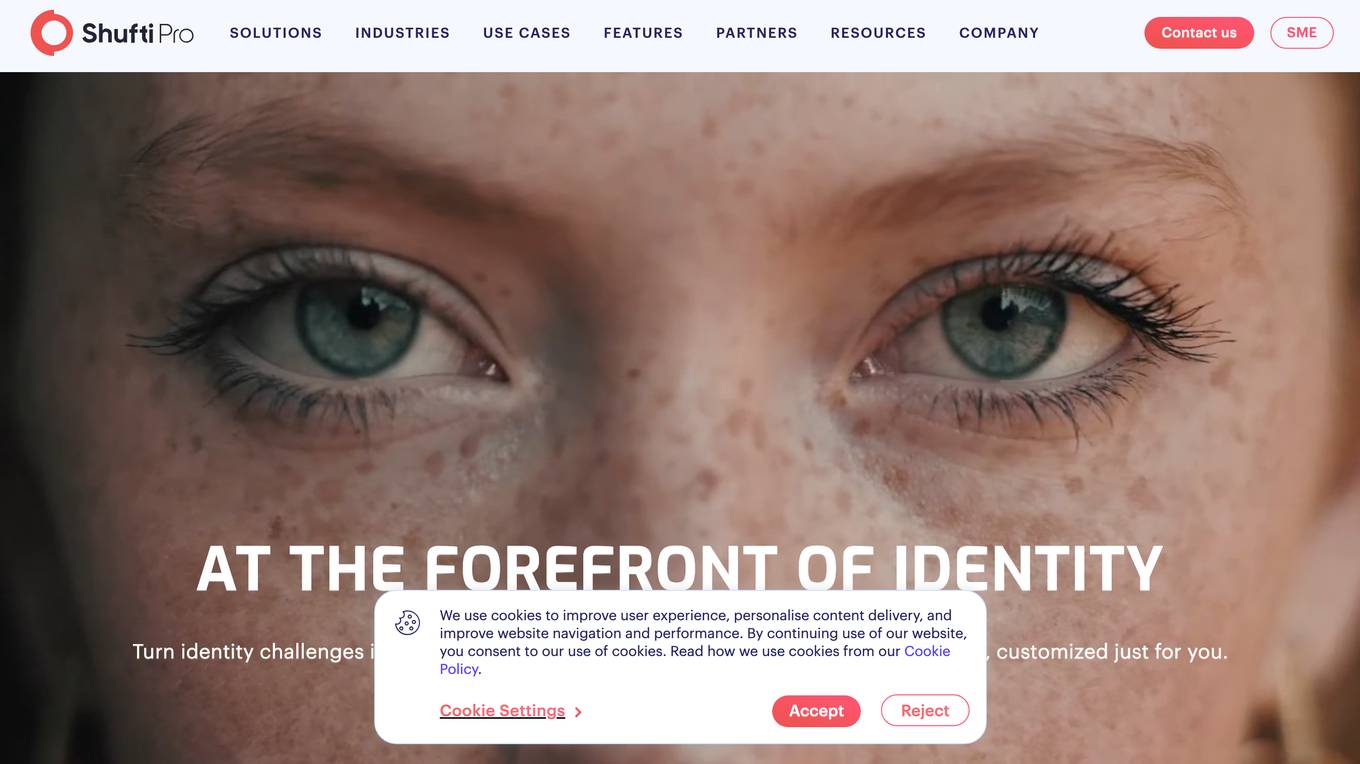
Shufti Pro
Shufti Pro is an award-winning global identity verification platform that provides businesses with a suite of tools to verify the identities of their customers. The platform uses artificial intelligence (AI) to automate the identity verification process, making it faster, more accurate, and more secure. Shufti Pro's solutions are used by businesses in a variety of industries, including banking, fintech, crypto, forex, gaming, insurance, education, healthcare, e-commerce, and travel.
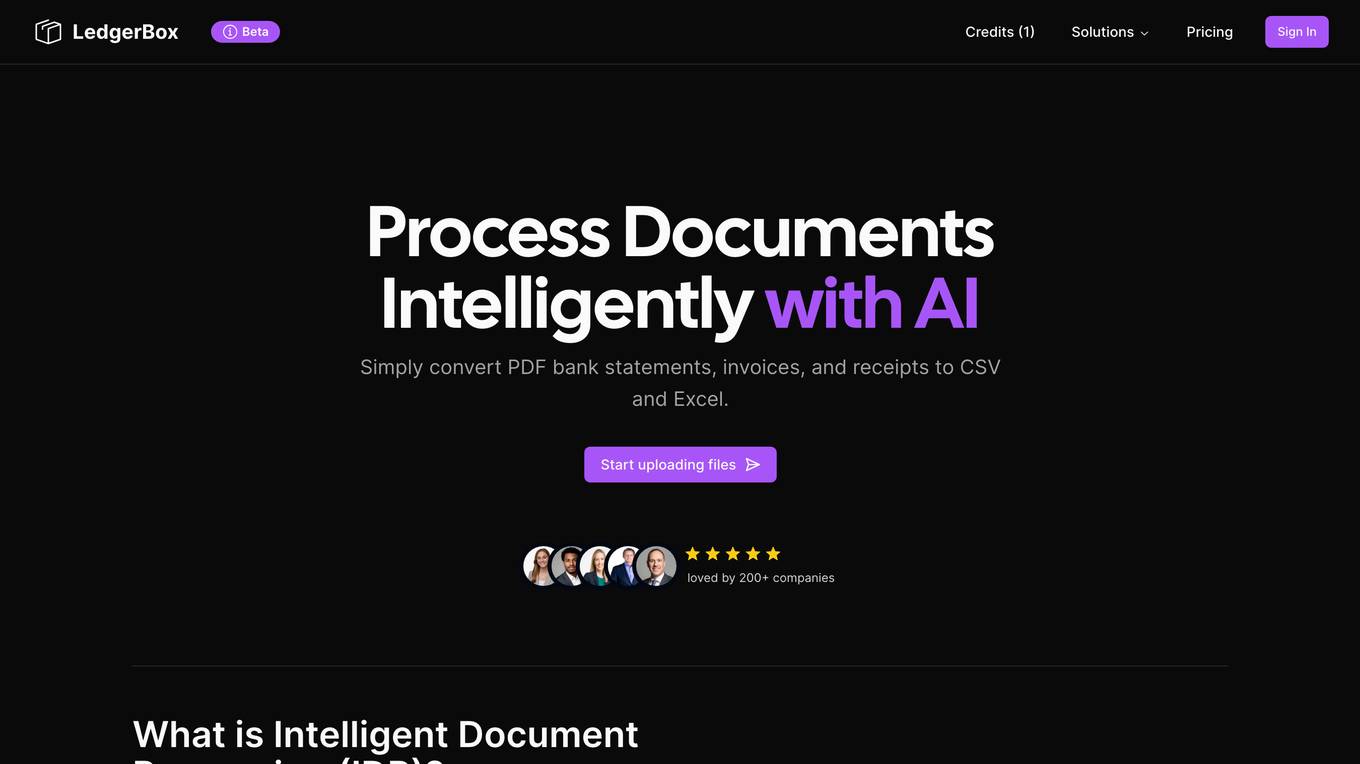
AI Bank Statement Converter
The AI Bank Statement Converter is an industry-leading tool designed for accountants and bookkeepers to extract data from financial documents using artificial intelligence technology. It offers features such as automated data extraction, integration with accounting software, enhanced security, streamlined workflow, and multi-format conversion capabilities. The tool revolutionizes financial document processing by providing high-precision data extraction, tailored for accounting businesses, and ensuring data security through bank-level encryption. It also offers Intelligent Document Processing (IDP) using AI and machine learning techniques to process structured, semi-structured, and unstructured documents.
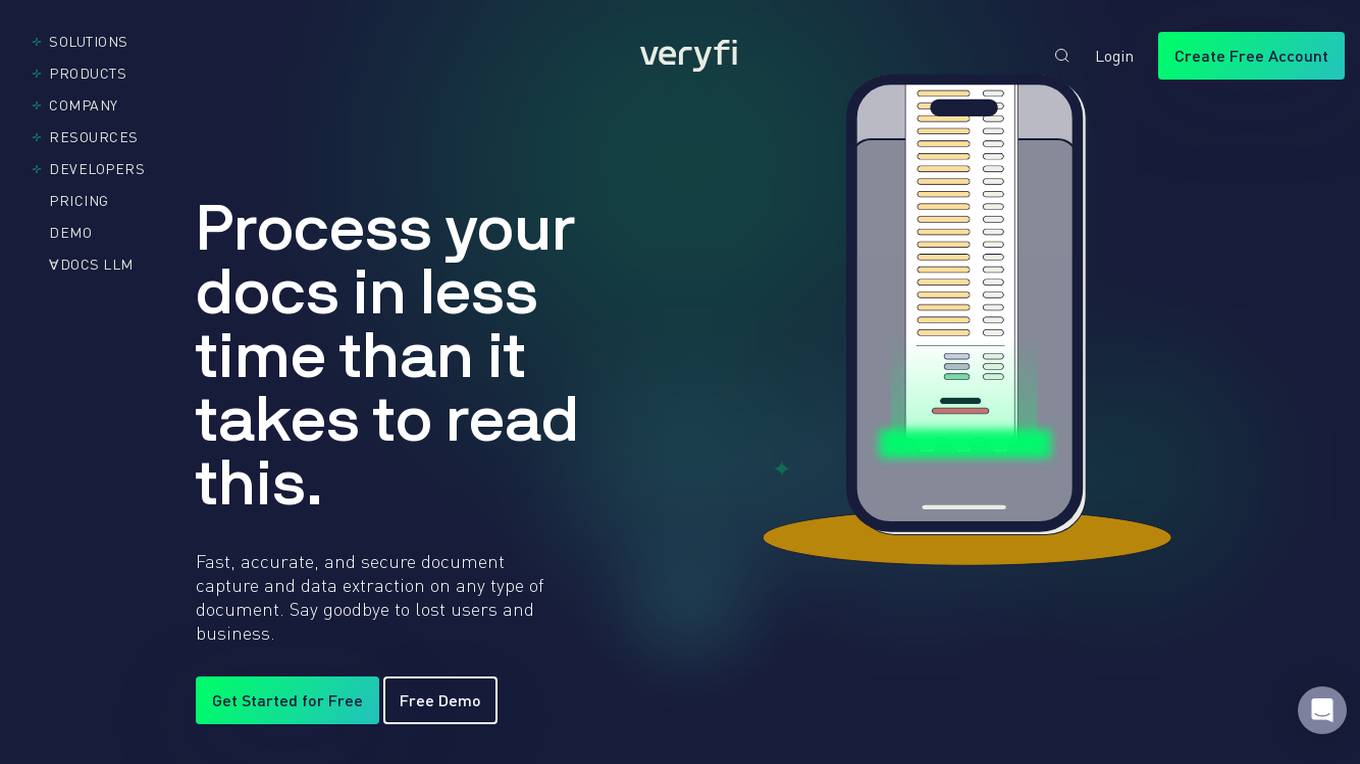
Veryfi
Veryfi is an OCR API tool for invoice and receipt data extraction. It offers fast, accurate, and secure document capture and data extraction on any type of document. Veryfi empowers users to process documents efficiently, automate manual data entry, and implement AI into various business processes. The tool is designed to streamline workflows, enhance accuracy, and unlock new levels of efficiency across industries such as finance, insurance, and more.
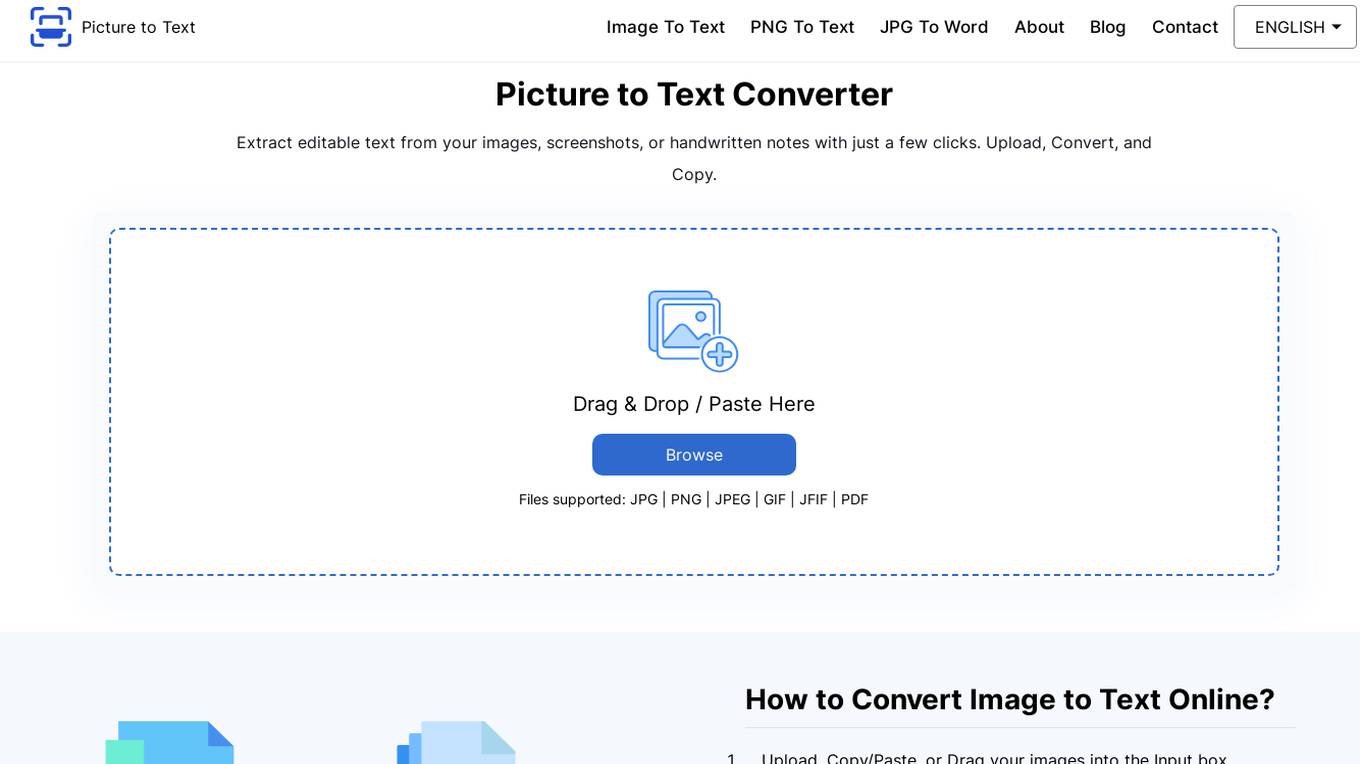
Picture to Text Converter
Picture to Text Converter is an online tool that uses Optical Character Recognition (OCR) technology to extract text from images. It can process various image formats like JPG, PNG, GIF, scanned documents (PDFs), and even photos taken with your phone's camera. The extracted text can be copied to the clipboard or downloaded as a TXT file. Picture to Text Converter is free to use and does not require any registration or installation. It is a convenient and efficient way to convert images into editable text.
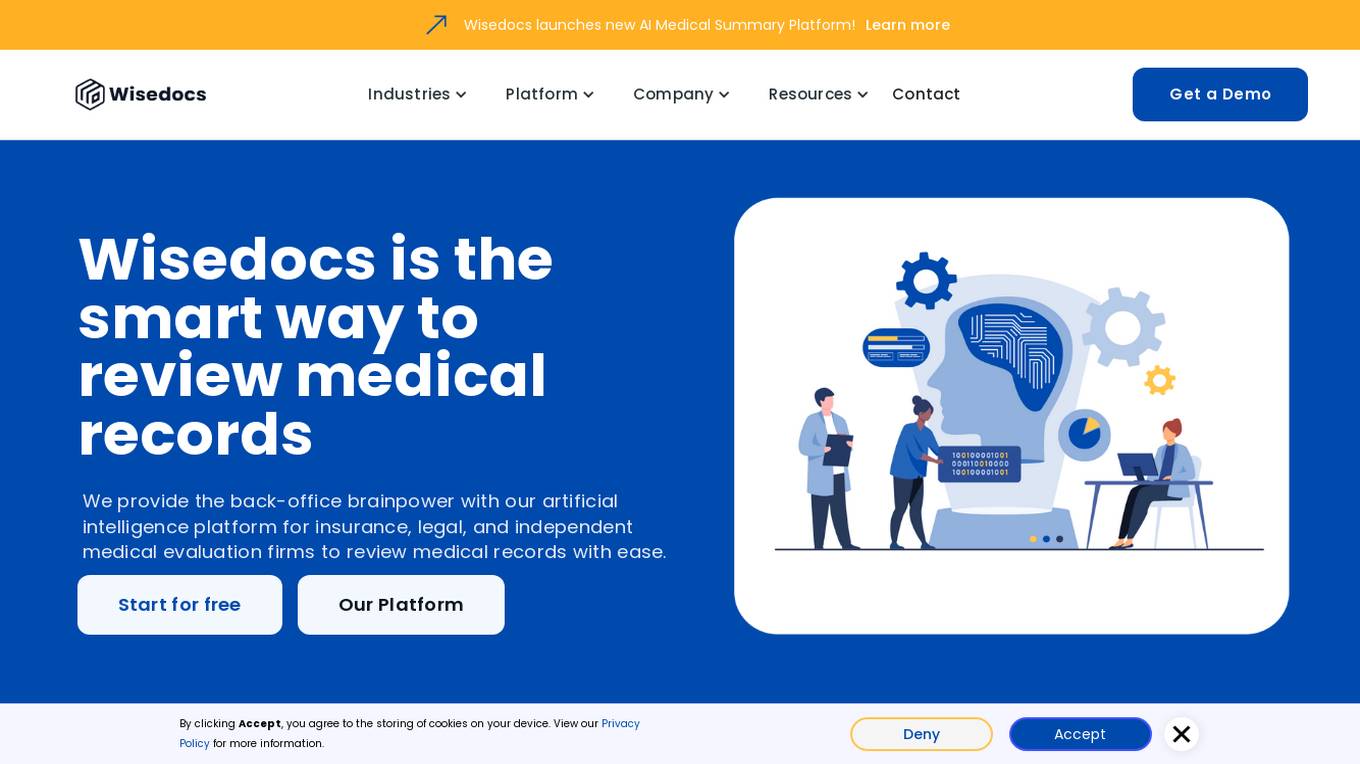
Wisedocs
Wisedocs is an AI-powered platform that specializes in medical record reviews, summaries, and insights for claims processing. The platform offers intelligent features such as medical chronologies, workflows, deduplication, intelligent OCR, and insights summaries. Wisedocs streamlines the process of reviewing medical records for insurance, legal, and independent medical evaluation firms, providing speed, accuracy, and efficiency in claims processing. The platform automates tasks that were previously laborious and error-prone, making it a valuable tool for industries dealing with complex medical records.
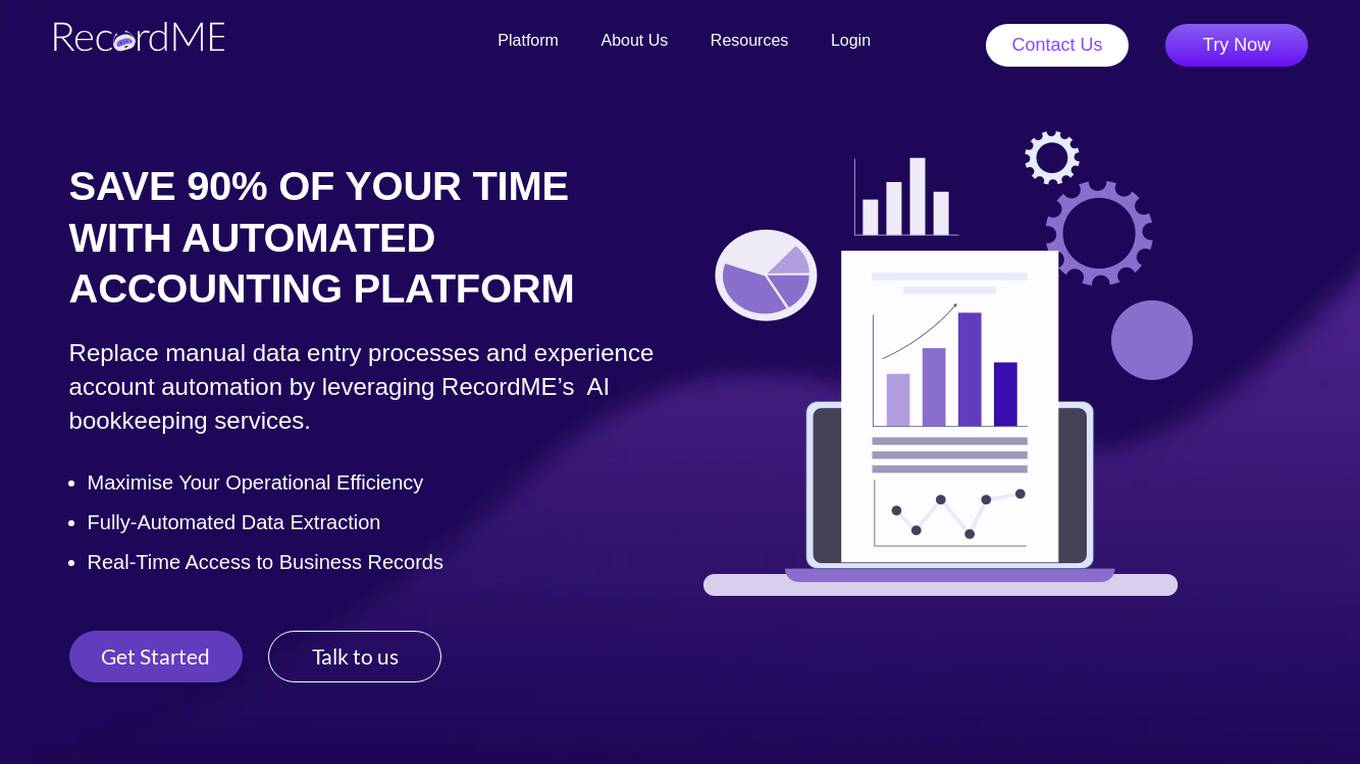
RecordMe
RecordMe is an AI-powered automated accounting and bookkeeping platform that offers fully automated data extraction, real-time access to business records, and streamlined invoice processing. The platform leverages OCR technology to extract and categorize accounting data efficiently, providing users with valuable data insights. RecordMe aims to maximize operational efficiency, eliminate manual data entry processes, and empower businesses to automate accounting and bookkeeping through a simple drag-and-drop process.
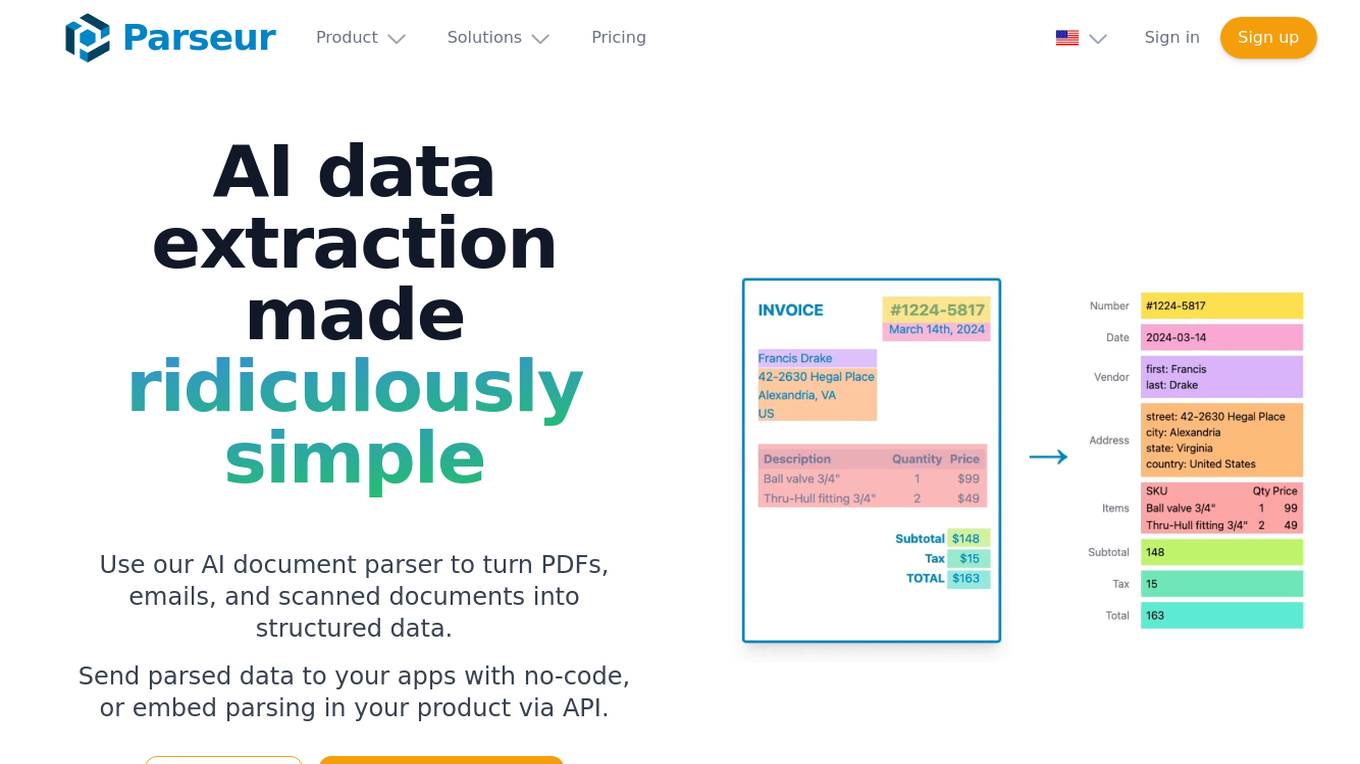
Parseur
Parseur is an AI data extraction software that uses artificial intelligence to extract structured data from various types of documents such as PDFs, emails, and scanned documents. It offers features like template-based data extraction, OCR software for character recognition, and dynamic OCR for extracting fields that move or change size. Parseur is trusted by businesses in finance, tech, logistics, healthcare, real estate, e-commerce, marketing, and human resources industries to automate data extraction processes, saving time and reducing manual errors.
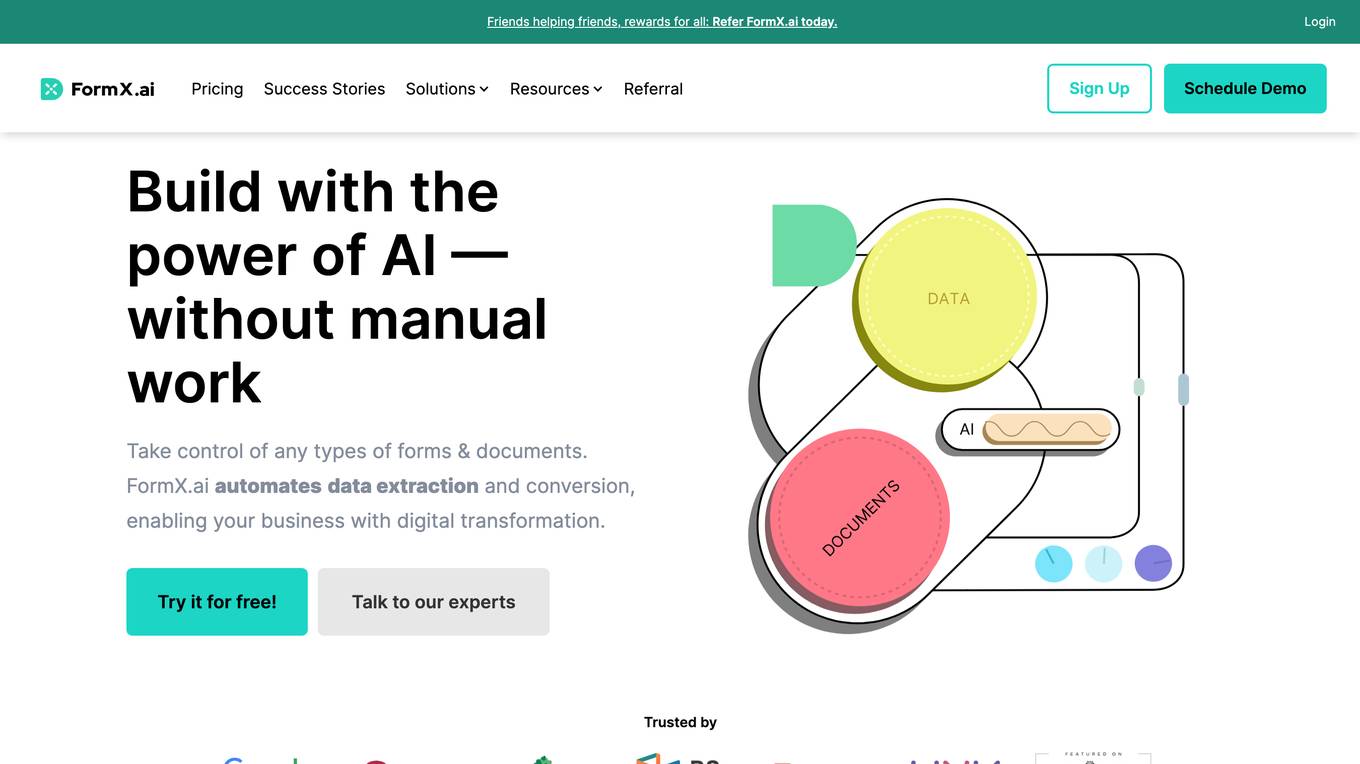
FormX.ai
FormX.ai is an AI-powered data extraction and conversion tool that automates the process of extracting data from physical documents and converting it into digital formats. It supports a wide range of document types, including invoices, receipts, purchase orders, bank statements, contracts, HR forms, shipping orders, loyalty member applications, annual reports, business certificates, personnel licenses, and more. FormX.ai's pre-configured data extraction models and effortless API integration make it easy for businesses to integrate data extraction into their existing systems and workflows. With FormX.ai, businesses can save time and money on manual data entry and improve the accuracy and efficiency of their data processing.
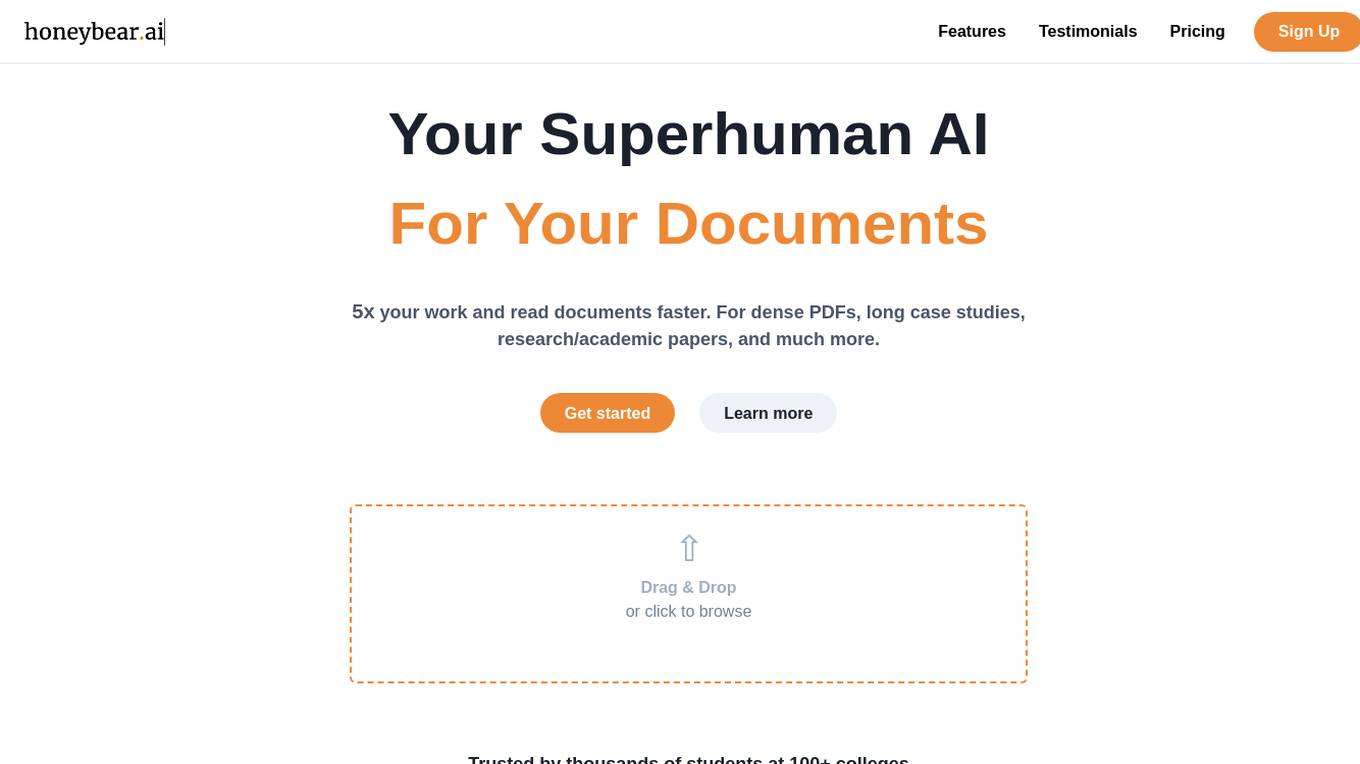
Honeybear.ai
Honeybear.ai is an AI tool designed to simplify document reading tasks. It utilizes advanced algorithms to extract and analyze text from various documents, making it easier for users to access and comprehend information. With Honeybear.ai, users can streamline their document processing workflows and enhance productivity.
1 - Open Source AI Tools
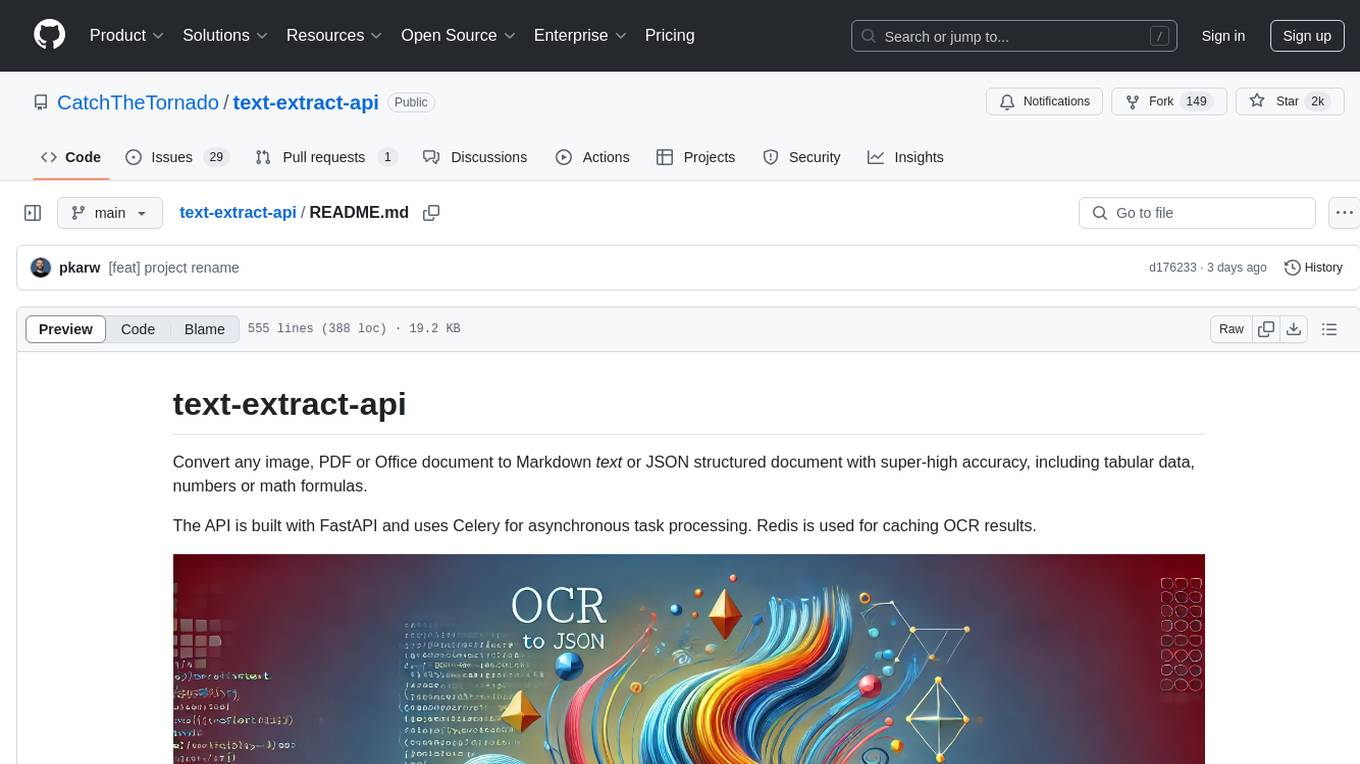
text-extract-api
The text-extract-api is a powerful tool that allows users to convert images, PDFs, or Office documents to Markdown text or JSON structured documents with high accuracy. It is built using FastAPI and utilizes Celery for asynchronous task processing, with Redis for caching OCR results. The tool provides features such as PDF/Office to Markdown and JSON conversion, improving OCR results with LLama, removing Personally Identifiable Information from documents, distributed queue processing, caching using Redis, switchable storage strategies, and a CLI tool for task management. Users can run the tool locally or on cloud services, with support for GPU processing. The tool also offers an online demo for testing purposes.
20 - OpenAI Gpts
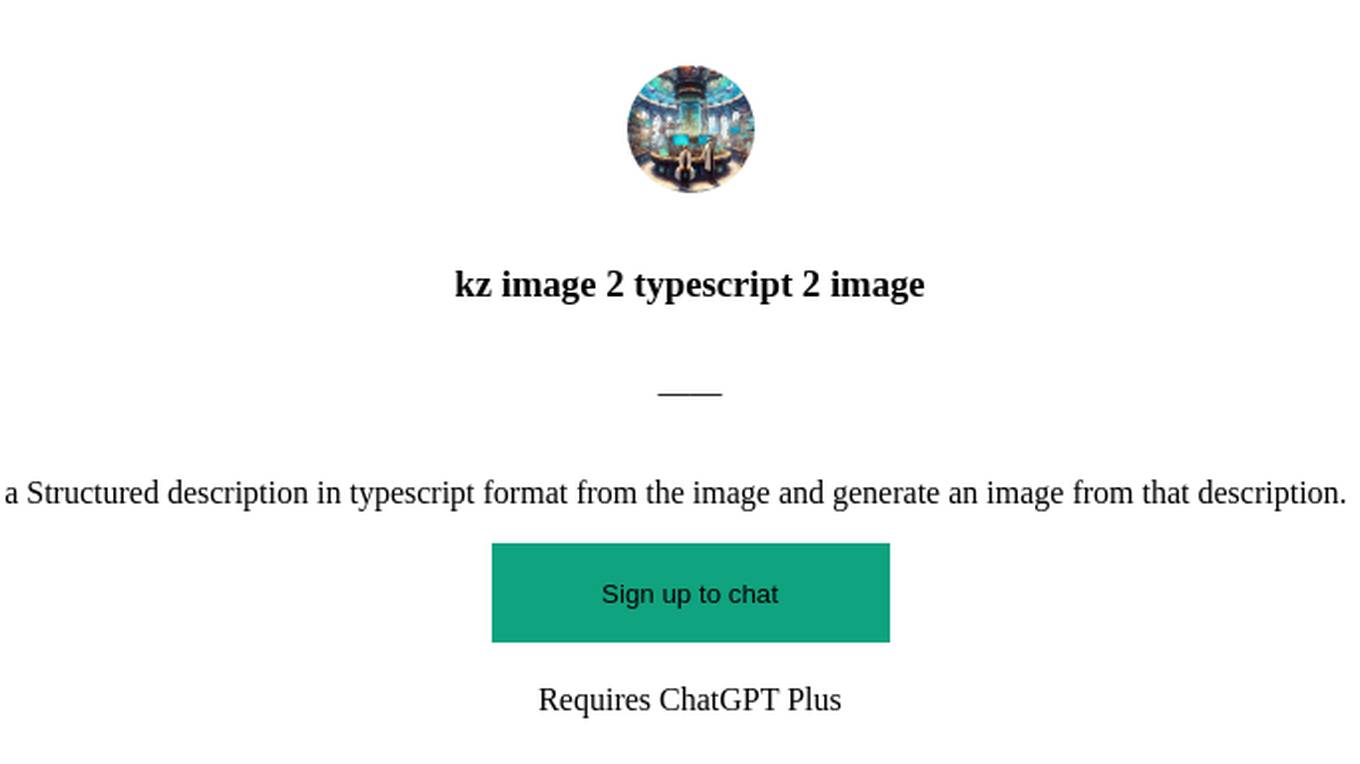
kz image 2 typescript 2 image
Generate a Structured description in typescript format from the image and generate an image from that description. and OCR
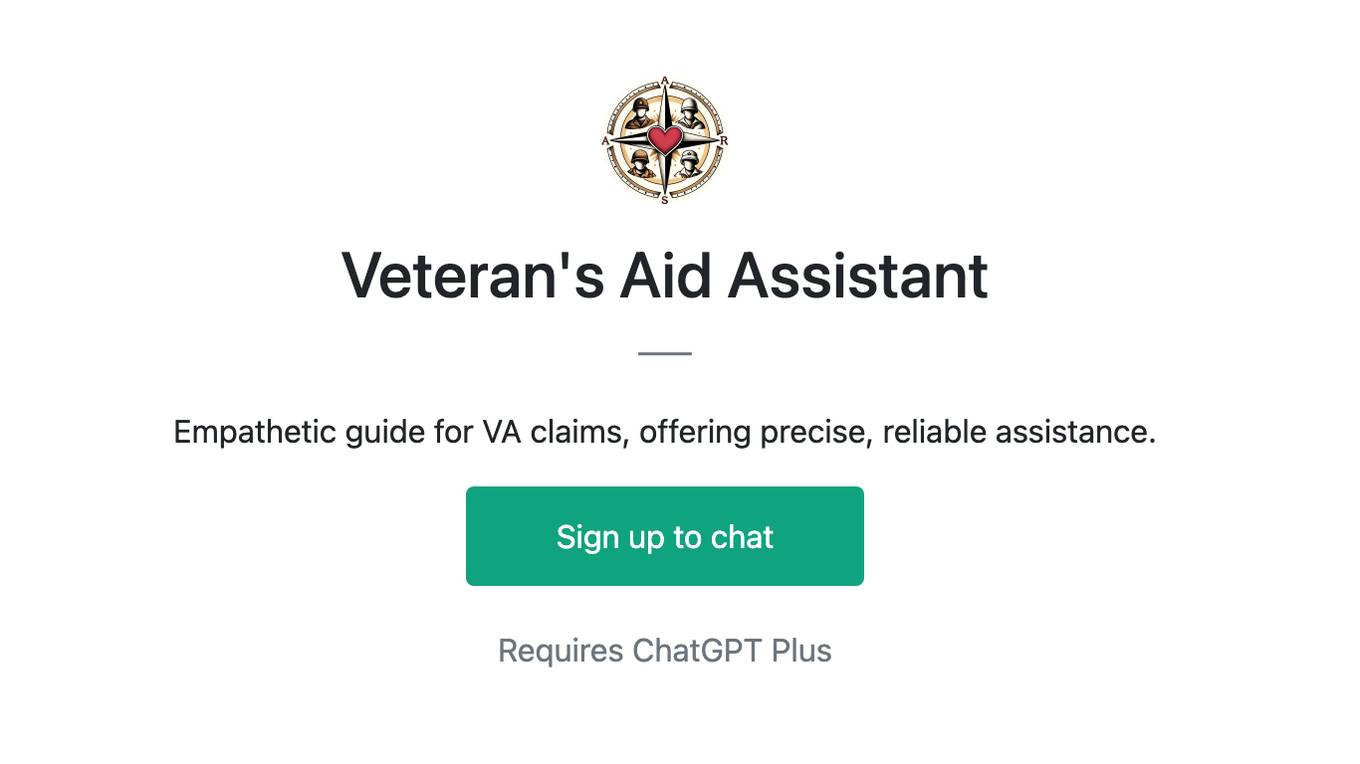
Veteran's Aid Assistant
Empathetic guide for VA claims, offering precise, reliable assistance.

Loan Management Software
Loan management software expertise. Get the most powerful loan origination and loan servicing software on the market.
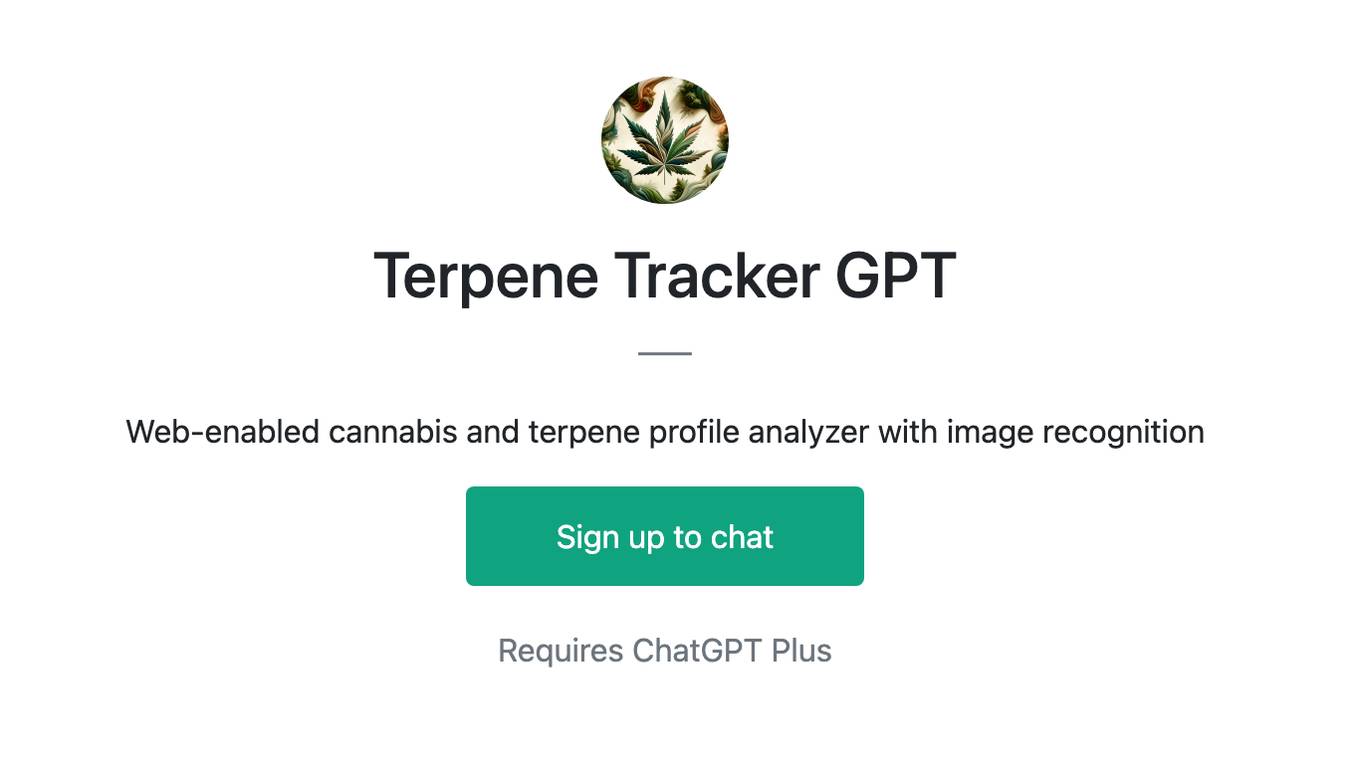
Terpene Tracker GPT
Web-enabled cannabis and terpene profile analyzer with image recognition
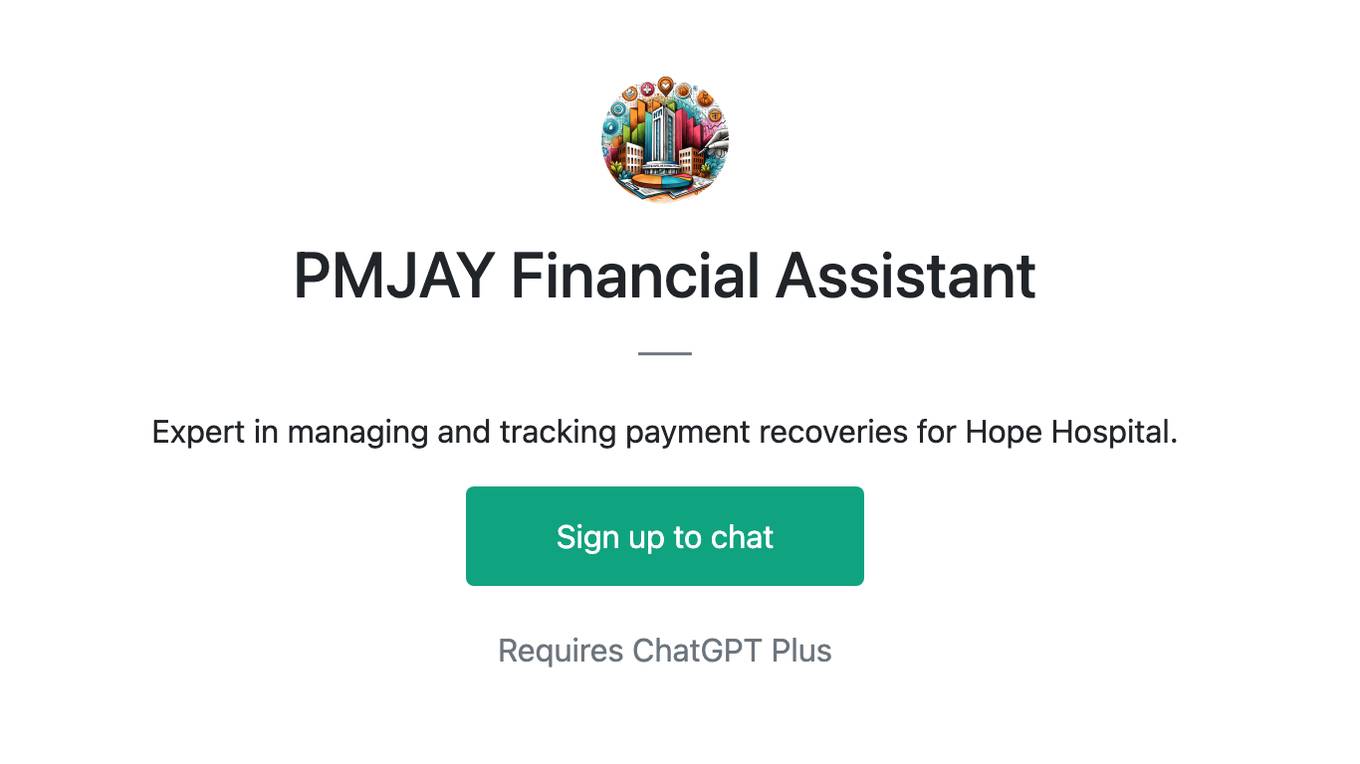
PMJAY Financial Assistant
Expert in managing and tracking payment recoveries for Hope Hospital.
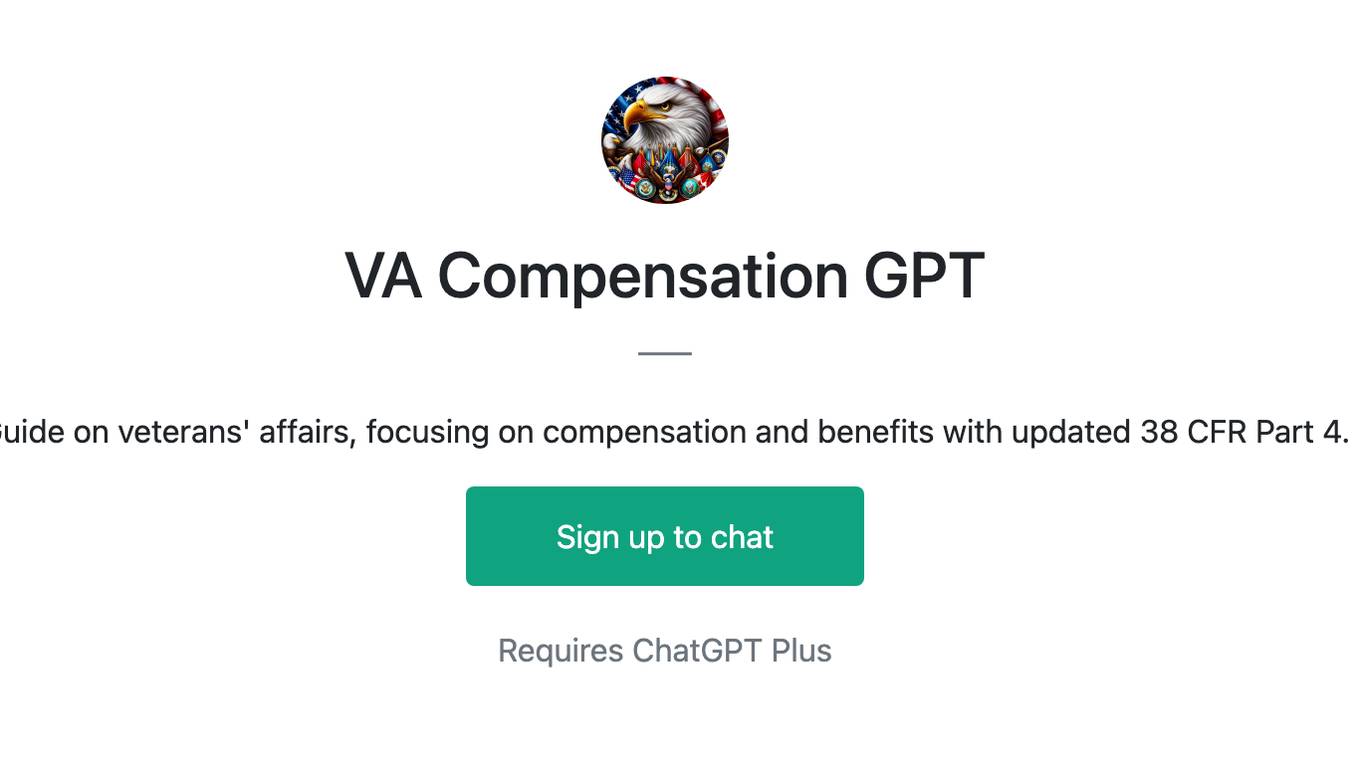
VA Compensation GPT
Guide on veterans' affairs, focusing on compensation and benefits with updated 38 CFR Part 4.
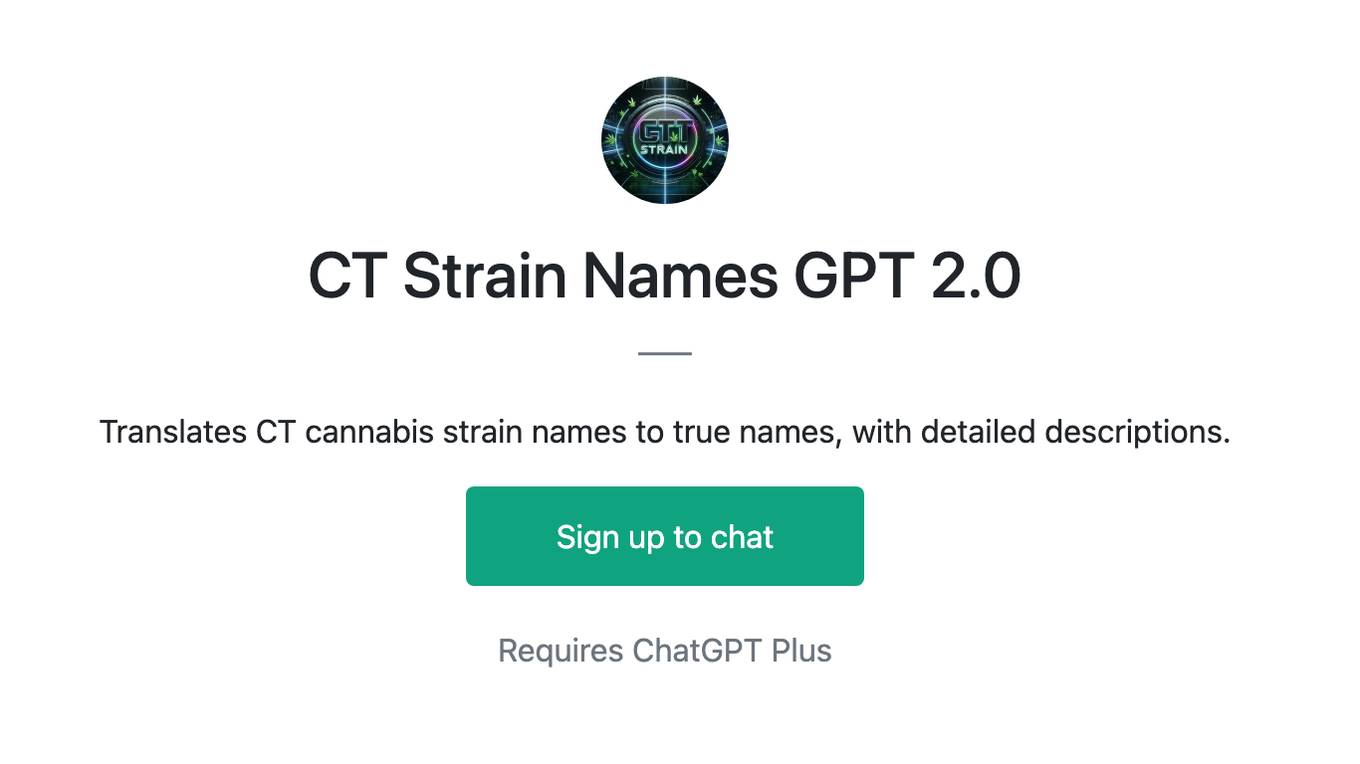
CT Strain Names GPT 2.0
Translates CT cannabis strain names to true names, with detailed descriptions.
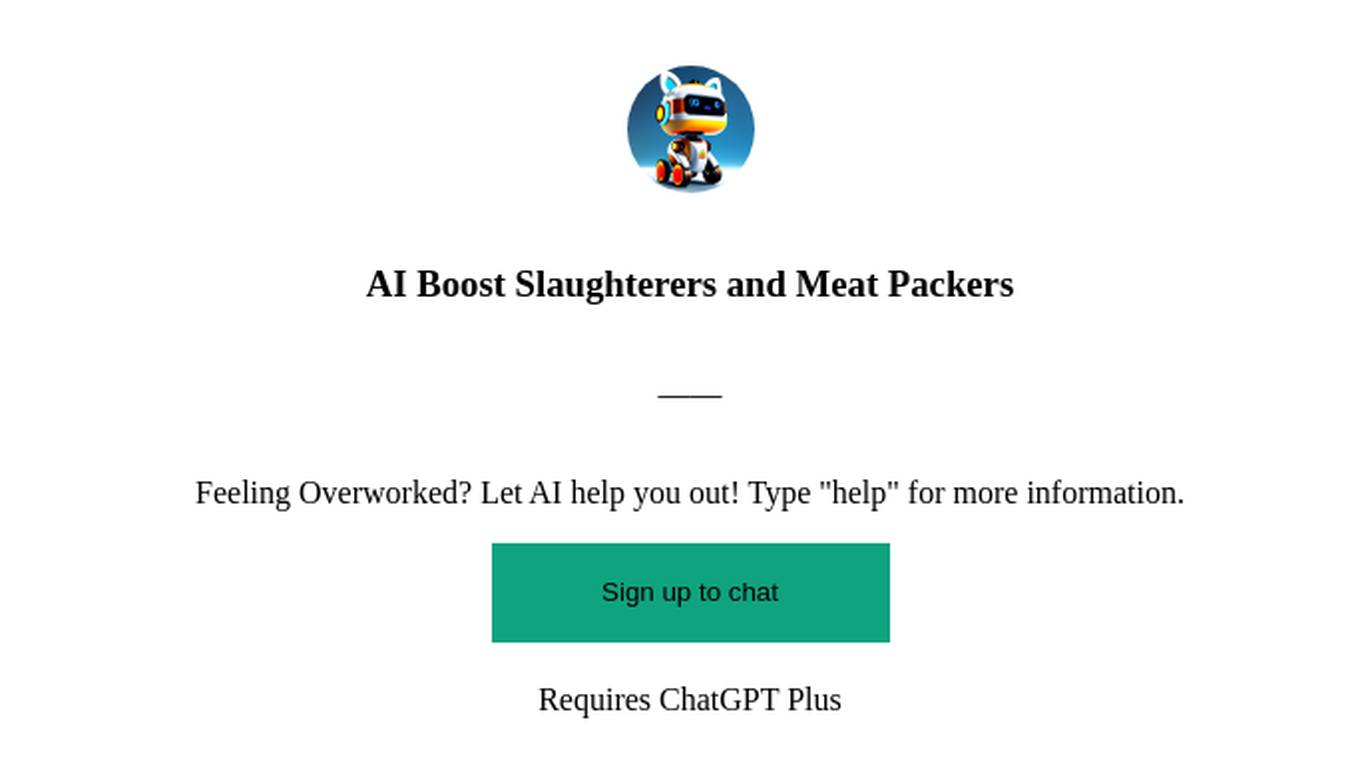
AI Boost Slaughterers and Meat Packers
Feeling Overworked? Let AI help you out! Type "help" for more information.
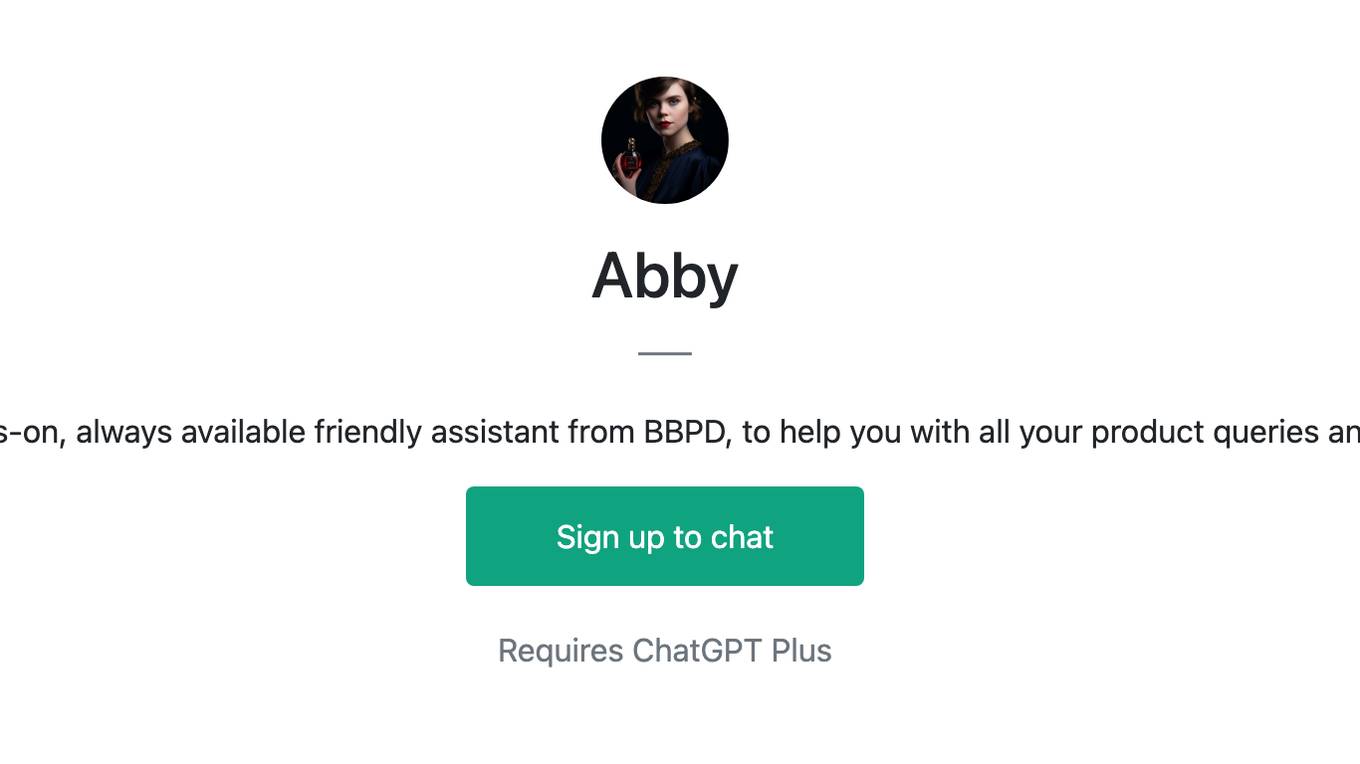
Abby
Your always-on, always available friendly assistant from BBPD, to help you with all your product queries and orders.
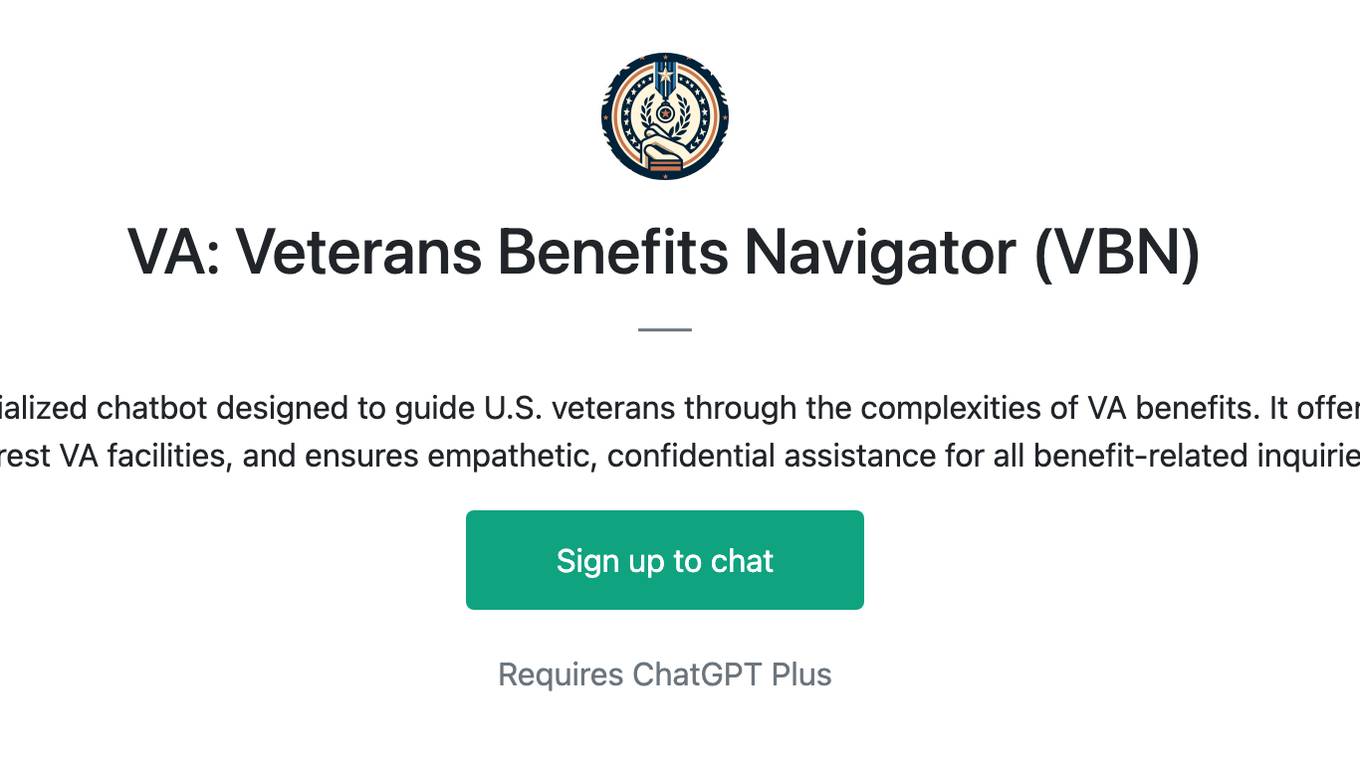
VA: Veterans Benefits Navigator (VBN)
Veterans Benefits Navigator (VBN) is a specialized chatbot designed to guide U.S. veterans through the complexities of VA benefits. It offers tailored, up-to-date information, locates nearest VA facilities, and ensures empathetic, confidential assistance for all benefit-related inquiries.
